Are you captivated by Renaissance and early modern art? These are the best museums to visit in Spain:
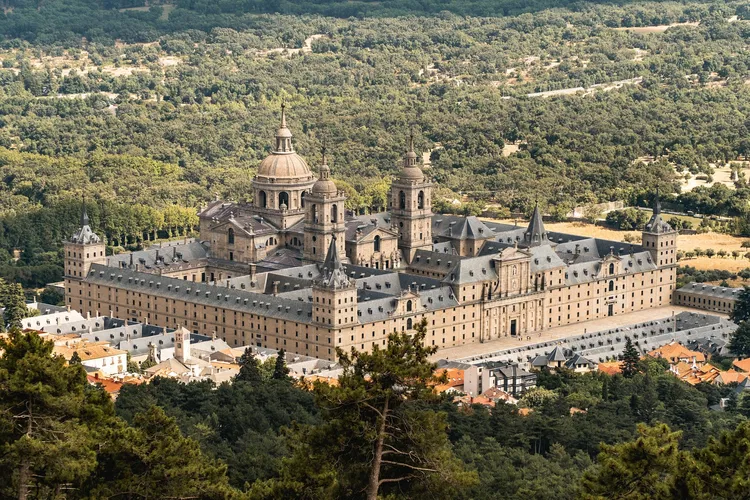
Royal Site of San Lorenzo de El Escorial
MadridEl Escorial, located in the Madrid Autonomous Region at the foot of the Sierra de Guadarrama mountain, is a significant religious and cultural structure. It comprises a monastery, palace, library, and other sections. This complex was used as a residence by King Philip II of Spain, adding to its historical significance.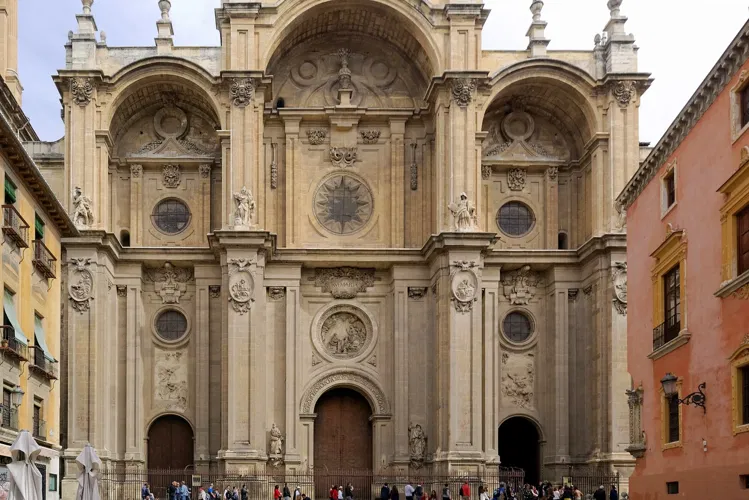
Granada Cathedral
GranadaThe Granada Cathedral, also known as Santa María de la Encarnación de Granada, is a significant religious site located in Granada, southern Spain. It serves as the seat of the Archbishop of Granada. The cathedral's rich history and architectural grandeur make it a notable point of interest for visitors.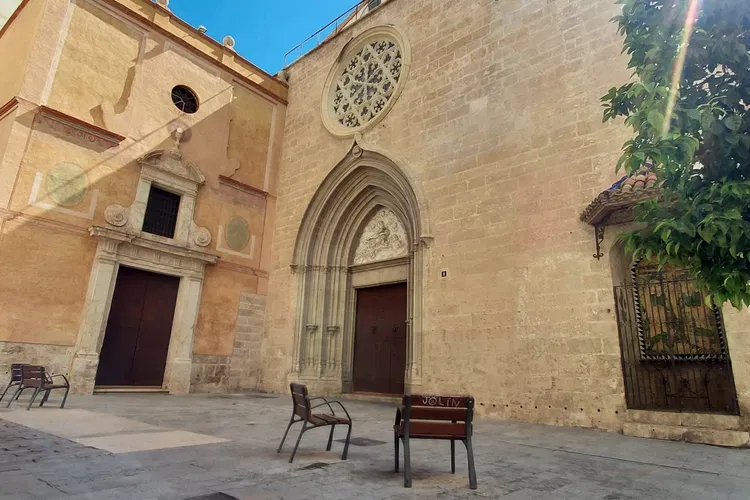
Church of San Nicolás
ValenciaThe Church of St. Nicholas and Peter, also known as the 'Sistine Chapel of Valencia', is one of the city's main attractions. Located in the El Carmen district in the historical center of Valencia, the church is renowned for its ceiling paintings. However, due to its location, it can be somewhat difficult for visitors to find as it is largely surrounded by other buildings.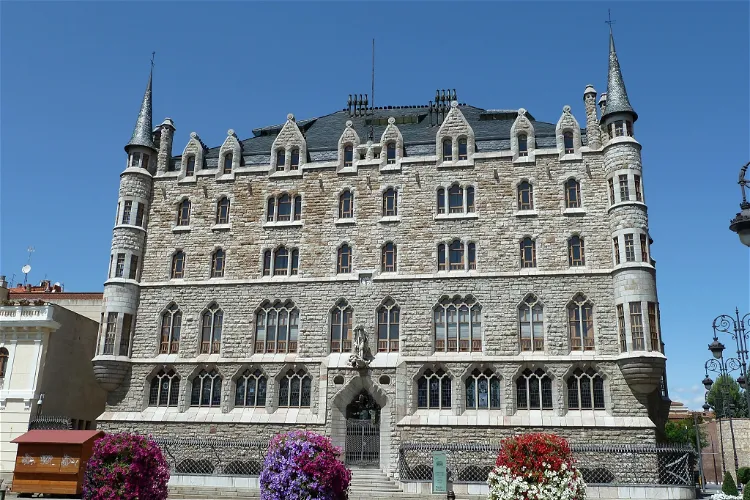
Gaudí Botines House Museum
LeónThe Casa Botines, constructed between 1891 and 1892, is a Modernist building located in León, Spain. This architectural masterpiece was designed by the renowned architect Antoni Gaudí. Today, it serves as a museum that showcases the works of Gaudí, Spanish art from the 19th and 20th centuries, and the history of the Casa Botines itself.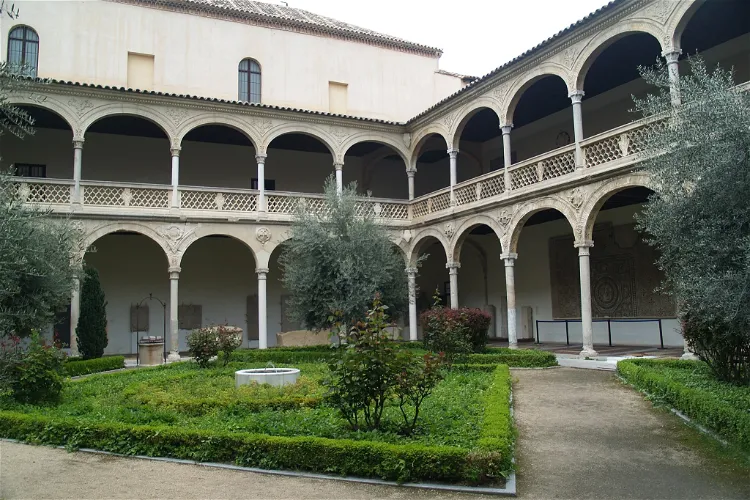
Museum of Santa Cruz
ToledoThe Museum of Santa Cruz is a significant cultural institution located in the historic centre of Toledo, Spain. It is an art, archaeology, and ethnographic museum that showcases collections related to the province of Toledo. The museum is a great place for tourists who are interested in art, history, and culture.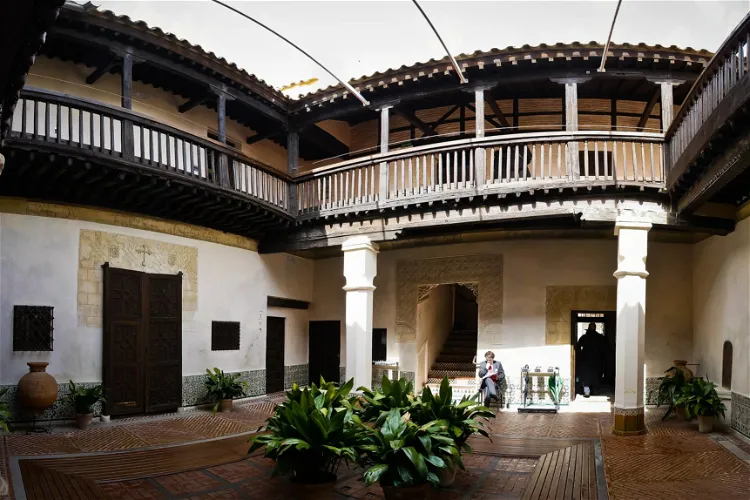
El Greco Museum
ToledoThe El Greco Museum, situated in the city of Toledo, Spain, is a tribute to the life and work of the renowned painter El Greco. Born in Crete, El Greco spent a significant part of his life in Toledo, where he created most of his masterpieces. The museum offers a unique opportunity to delve into the artist's life and explore his prolific work.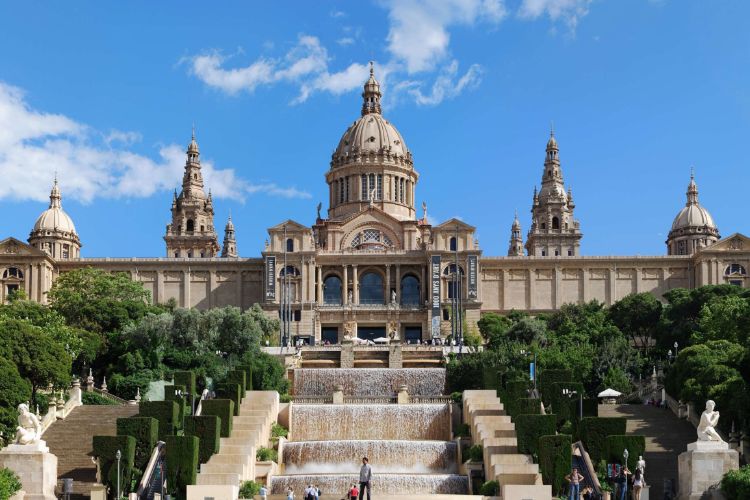
MNAC - Museu Nacional d'Art de Catalunya
BarcelonaMuseu Nacional d'Art de Catalunya displays original Catalan art but it is also known for its extensive collection of Romanesque paintings. It's set in the Palau Nacional of Montjuïc, a Spanish Renaissance building designed for the 1929 International Exhibition. On the ground floor, the collections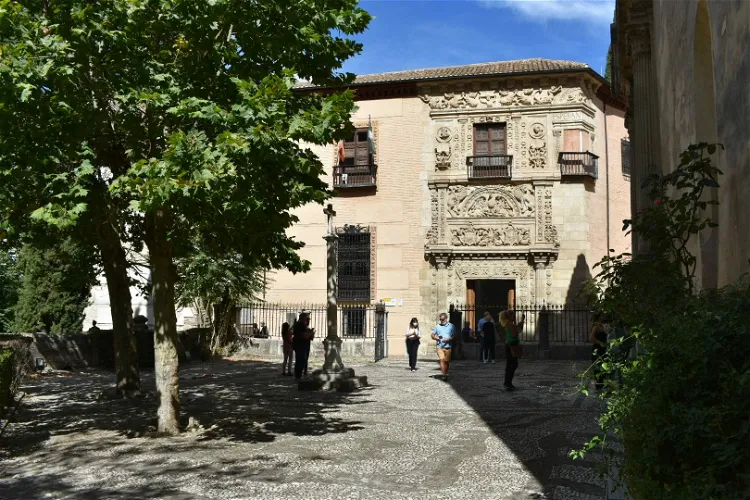
Castril Palace
GranadaCastril House, a Renaissance palace, is situated in the Spanish city of Granada, within the autonomous community of Andalusia. Today, it serves as the home of the Granada Archaeological Museum. This location offers visitors a chance to explore the rich history of the region through the museum's extensive collection.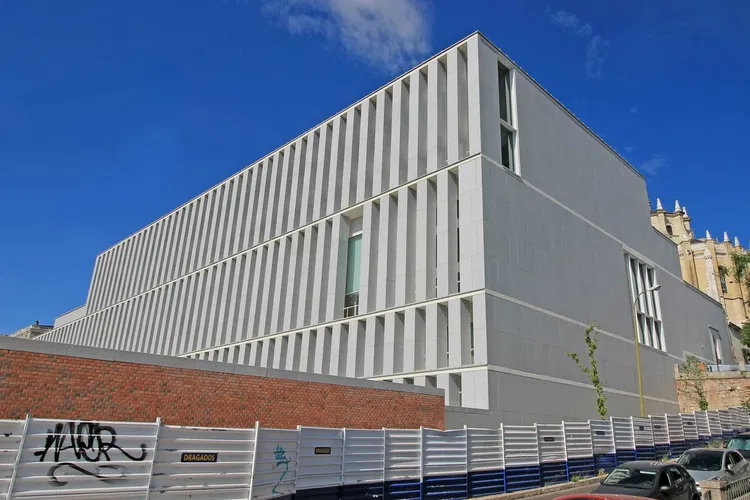
Royal Collections Gallery Madrid
MadridThe Royal Collections Gallery, which was originally known as the Royal Collections Museum, is an art museum situated in Madrid. It is managed by the Spanish state agency Patrimonio Nacional and is located in a new building above the gardens of the Campo del Moro park, adjacent to the Almudena Cathedral and the Royal Palace.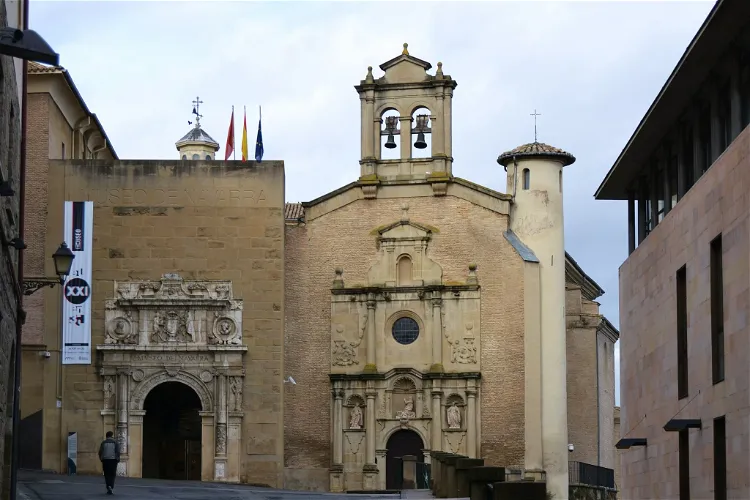
Museum of Navarre
PamplonaThe facade and chapel of the Museum of Navarre date back to the 16th century. The front is a work of Juan de Villarreal and Martín de Azcárate from 1556 and is the only example of civil Renaissance architecture in Pamplona. The side entrance to the chapel has a facade in the form of a 17th-century altarpiece from a church that was located on the main street, opposite the church of Santiago, in Puente la Reina.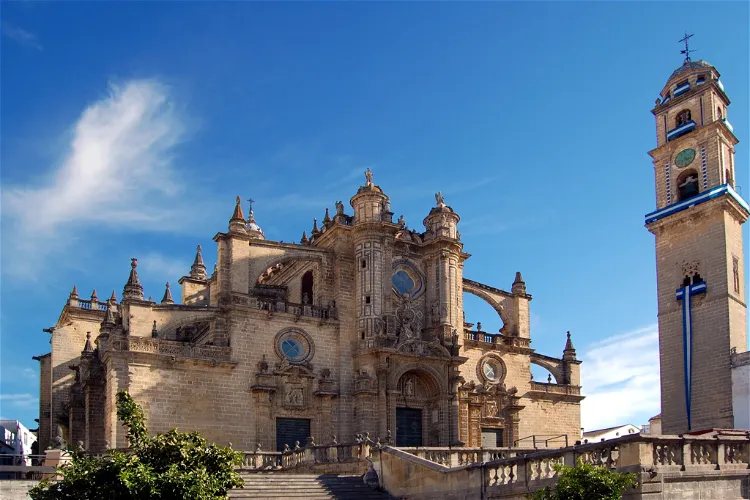
Cathedral of Jerez de la Frontera
Jerez de la FronteraThe Cathedral of the Holy Savior, a Catholic cathedral, is situated in the city of Jerez de la Frontera, within the autonomous community of Andalusia in Spain. This cathedral serves as a significant religious and cultural landmark in the region.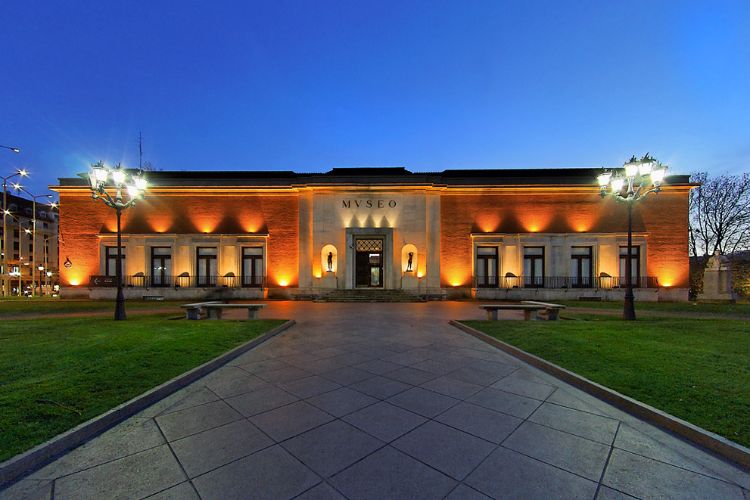
Bilbao Fine Arts Museum
BilbaoThe Bilbao Fine Arts Museum is an art museum in Bilbao, located inside the Doña Casilda Iturrizar park. It is one of the richest Spanish museums outside Madrid, with its extensive collection of Basque, Spanish and European art from the Middle Ages to contemporary. The Bilbao Fine Arts Museum holds w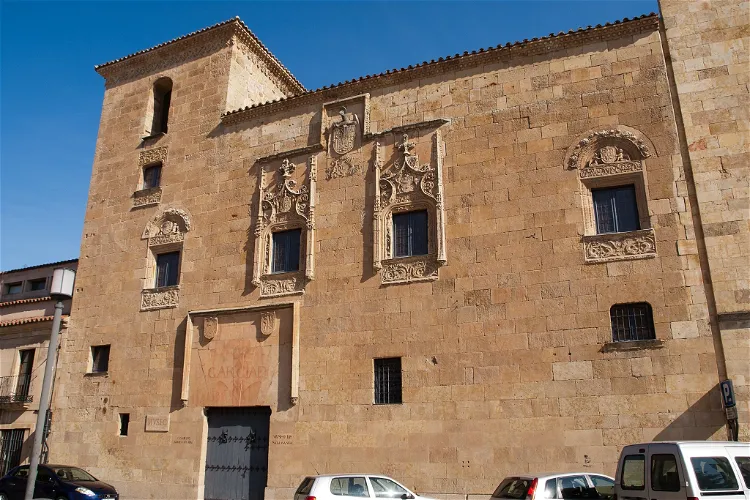
Museo de Salamanca (Casa de los Doctores de la Reina)
SalamancaThe Salamanca Museum, previously known as the Provincial Museum, has a rich history dating back to its establishment in 1835. Since 1947, it has been housed in the Casa de los Abarca, a former palace built in the late 15th century. This location adds to the museum's charm and historical significance.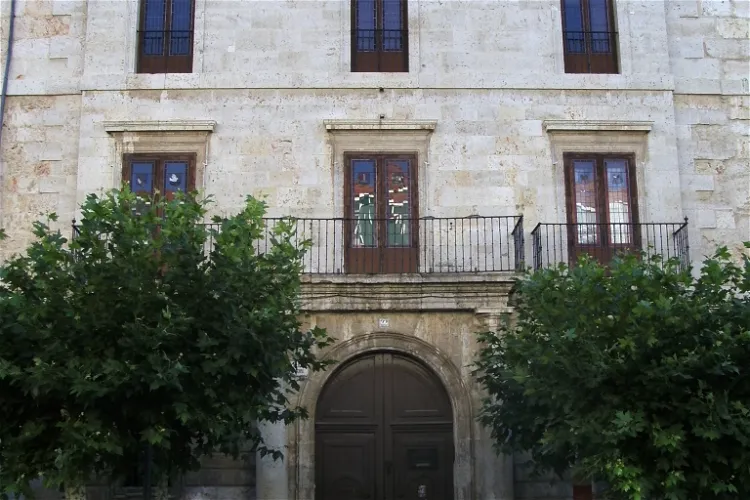
Diocesan Museum
PalenciaThe Diocesan Museum of Palencia, inaugurated in 1973, is a museum dedicated to the custody and study of the sacred art of the diocese. It is located in the Episcopal Palace of the capital of Palencia, a significant historical site in itself.
Cerralbo Museum
MadridThe Cerralbo Museum is a museum in Madrid that is housed in a historical mansion where it exhibits an extensive collection of artwork (over 50.000 objects). The museum is named after the marquis of Cerralbo, who used to own it. What was once considered the greatest private art collection in Spain, c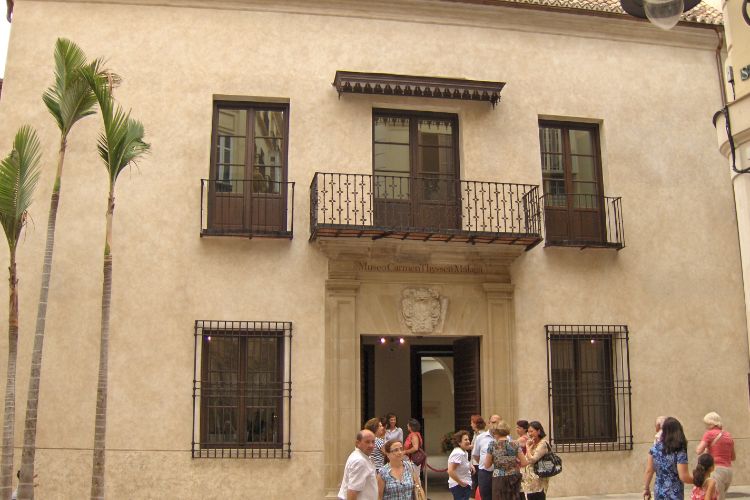
Museo Carmen Thyssen Málaga
MálagaThe Carmen Thyssen Museum (Museo Carmen Thyssen Málaga) is an art museum in Málaga that mainly focuses on 19th-century Spanish painting, predominantly Andalusian. The main part of the collection of the museum is based on the collection of Carmen Cervera, the third wife of Baron Hans Heinrich Thyssen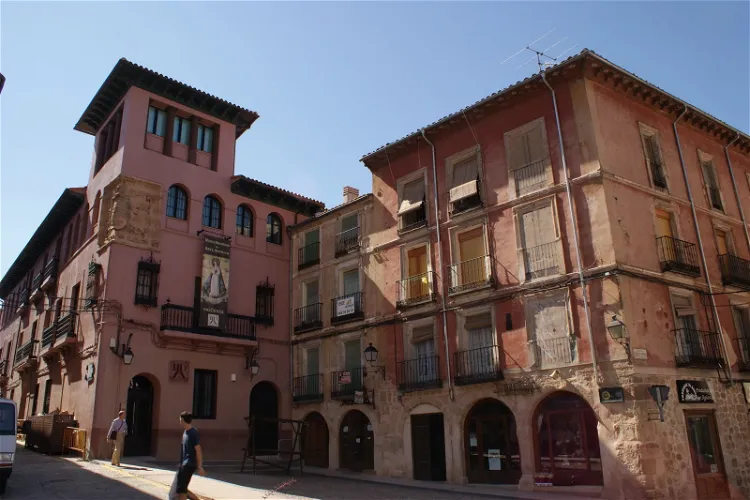
Diocesan Museum
SigüenzaThe Diocesan Museum of Ancient Art in Sigüenza is housed in a 16th-century neoclassical mansion known as the 'Antigua Casa de los Barrena'. This historic building is conveniently located in the heart of the city of Sigüenza, directly opposite the cathedral. This central location makes it easily accessible for tourists visiting the city.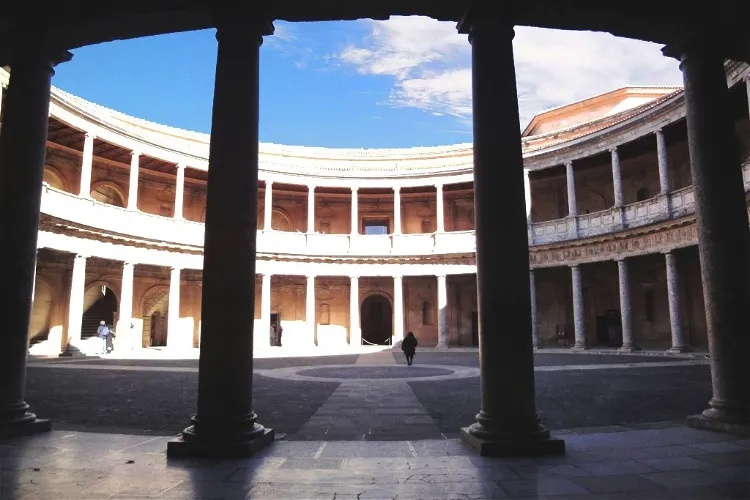
Museum of Fine Arts of Granada
GranadaThe Museum of Fine Arts of Granada is home to the largest collection of ancient art in Andalusian Granada. The majority of the works on display have a connection to the city, providing visitors with a unique insight into the region's rich artistic history.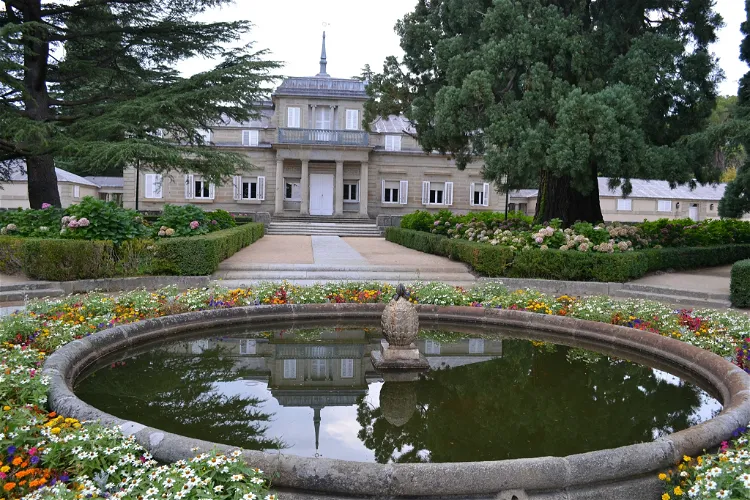
Casita del Príncipe
El EscorialLa Casita del Príncipe, also known as Casita de Abajo, is a royal residence from the 18th century. It is located in the municipality of El Escorial, in the Community of Madrid, Spain. The building was designed by Juan de Villanueva, one of the most important architects of Spanish neoclassicism, and was built between 1771 and 1775. It was declared a Cultural Interest Property in 1931.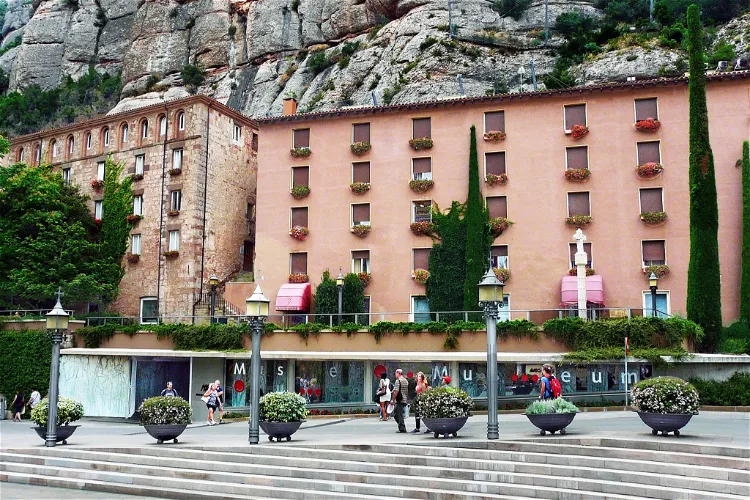
Museum of Montserrat
Monistrol de MontserratThe Museum of Montserrat is located within the Abbey of Montserrat, a thousand-year-old institution. It showcases a selection of the most outstanding artistic and archaeological heritage. This includes a wide range of collections, each unique and different, providing a comprehensive view of various historical periods and cultures.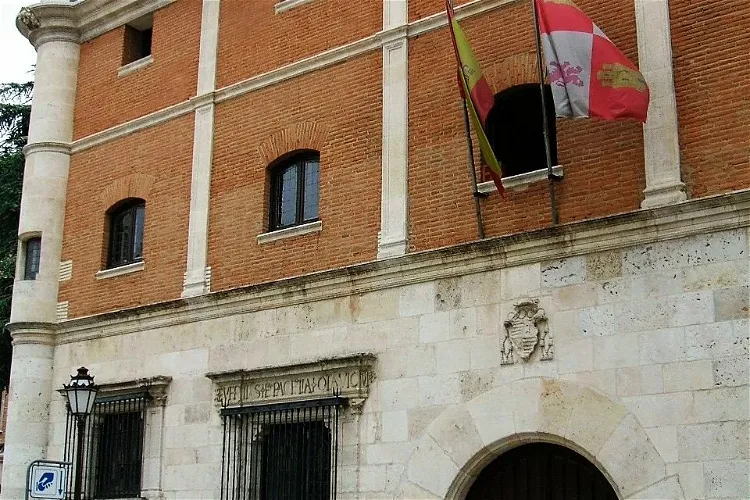
Burgos Museum
BurgosThe Museo de Burgos, previously known as the Museo Arqueológico Provincial, is situated in two neighboring 16th-century palaces, the Casa de Miranda and the Casa de Íñigo Angulo. These palaces form a block between Calle Calera and Calle Miranda in the Spanish city of Burgos. The museum's collections, which exclusively originate from the province of Burgos, showcase the historical and cultural evolution of the province.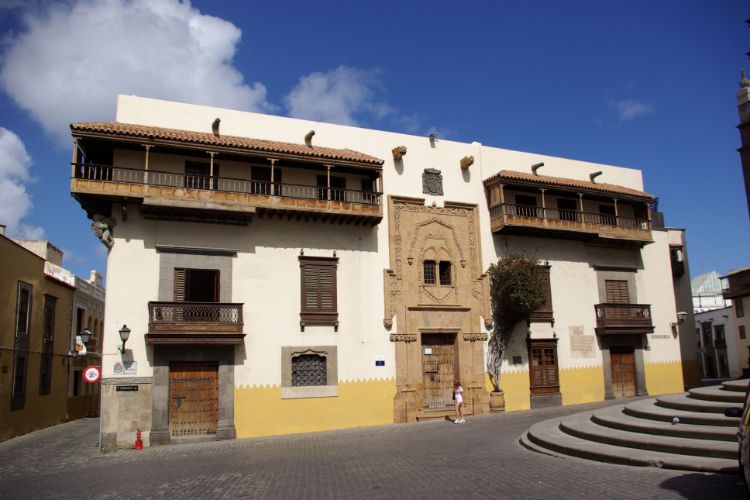
Casa de Colón
Las Palmas de Gran CanariaThe Casa de Colón is a cultural institution in Las Palmas de Gran Canaria.It is one of the most emblematic buildings of the city. It is dedicated to the history of the Canary Islands and its relations with America. It houses a museum, a library and study center, as well as spaces for temporary activ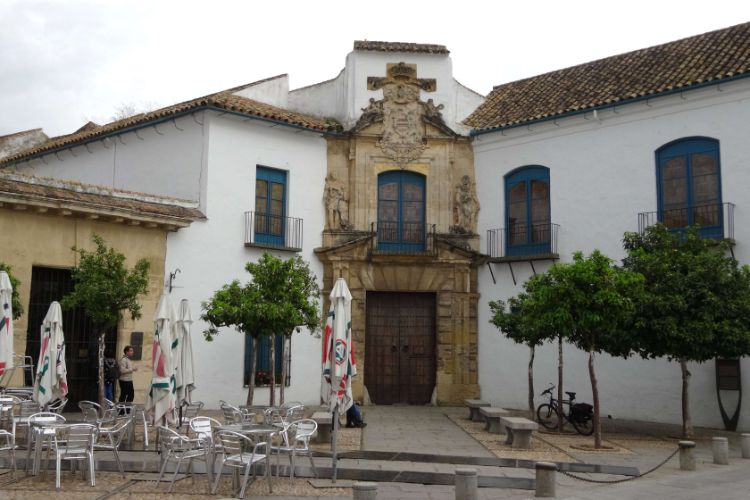
Palacio-Museo de Viana
CórdobaPalacio-Museo de Viana (The palace of the Marquises of Viana) is a palace-museum in Córdoba. The palace is an example of how the Cordovan nobility lived. The history of the palace begins in the 15th century. The collection of the museum is separated over various rooms, namely: the Gallery of the Azu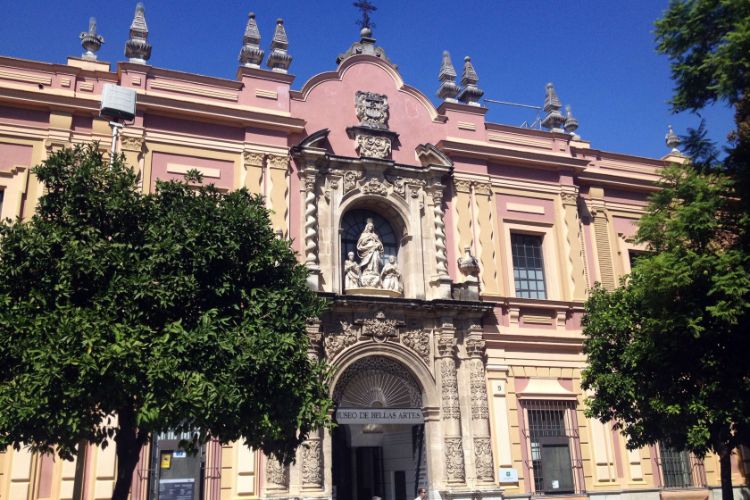
Museum of Fine Arts of Seville
SevilleThe Museum of Fine Arts of Seville is is an art museum in Seville that is considered one of the most important art museums in Spain. The museum holds a collection of mainly Spanish visual arts from the medieval period to the early 20th century, and is especially known for its baroque Sevillian paint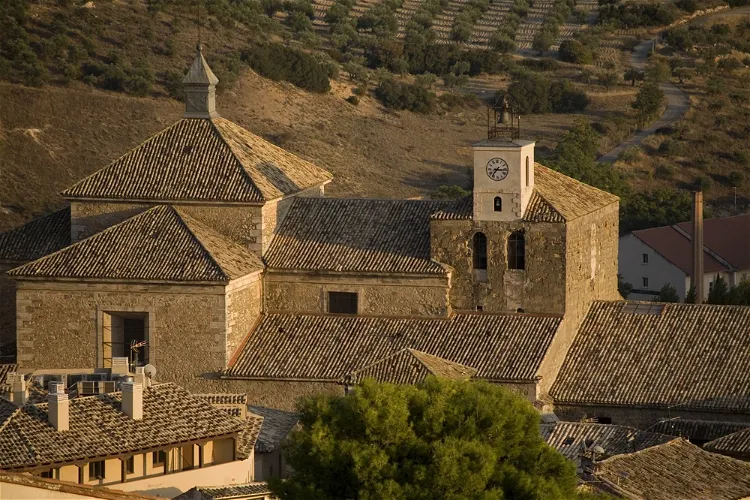
Collegiate Church
PastranaThe Collegiate Church of the Assumption is not just a place of worship, but also a museum housing a significant collection of tapestries and a wide variety of art pieces. These include paintings, altars, goldsmithing elements, and reliquaries. This diverse collection provides a comprehensive overview of the artistic and cultural richness of the region.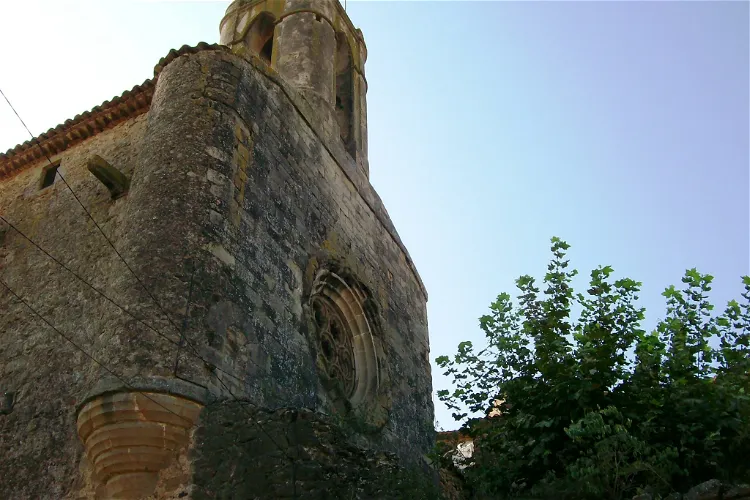
Castle of Púbol
PúbolThe Castle of Púbol, a Gothic-Renaissance fortification from the 11th century, is located in the hamlet of Púbol, which belongs to the municipality of La Pera, in the Baix Empordà. This historical site offers a unique glimpse into the past, with its well-preserved architecture and rich history.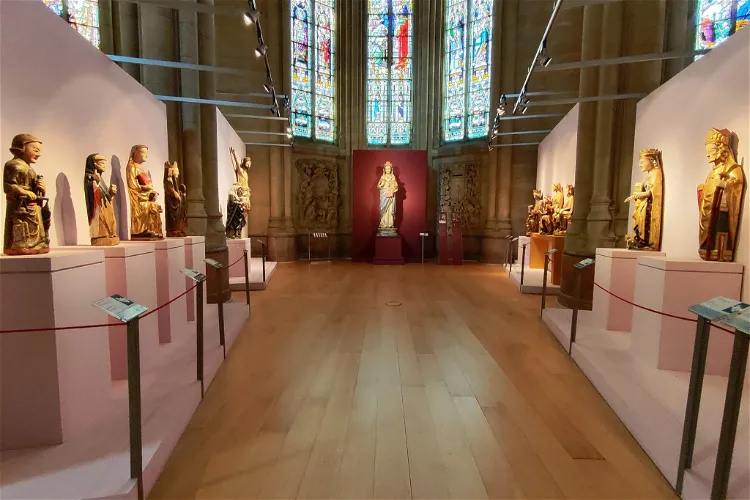
Diocesan Museum of Sacred Art
Vitoria-GasteizThe Diocesan Museum of Sacred Art, also known as Elizbarrutiko Arte Sakratuaren Museoa, is situated in the ambulatory of the Cathedral of Saint Mary Immaculate. This museum is located in the city of Vitoria-Gasteiz, Alava, in the Basque Country of Spain. It is a significant cultural and historical site that showcases a wide range of sacred art.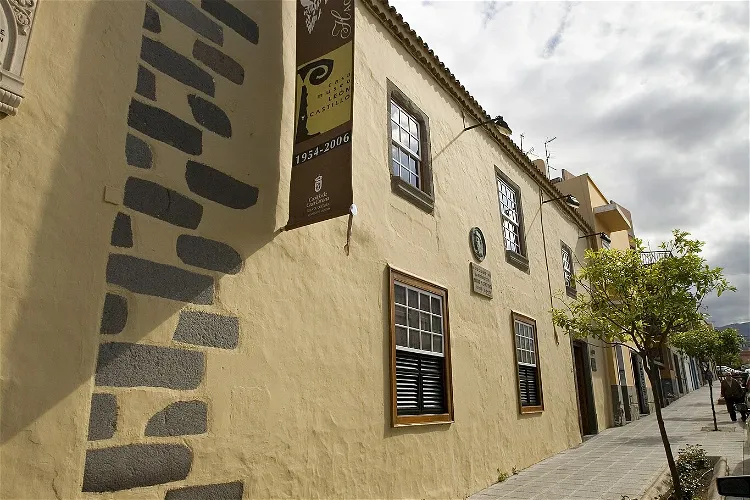
León y Castillo House Museum
TeldeThe León y Castillo House Museum is a public institution that is part of the Ministry of Culture, Historical Heritage and Museums of the Cabildo de Gran Canaria. It is situated in the city of Telde, on the island of Gran Canaria, which is part of the Canary Islands in Spain.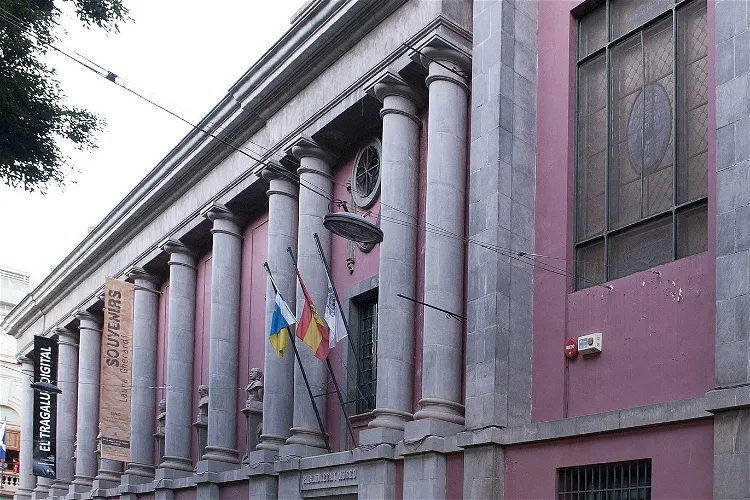
Municipal Museum of Fine Arts
Santa Cruz de TenerifeThe Municipal Museum of Fine Arts is situated in the city of Santa Cruz de Tenerife, Canary Islands, Spain. It is a part of the Autonomous Culture Organization of the Santa Cruz de Tenerife City Council. The museum is located at the rear of the building that was once the Convent of San Francisco, specifically on José Murphy Street, under the Plaza del Príncipe.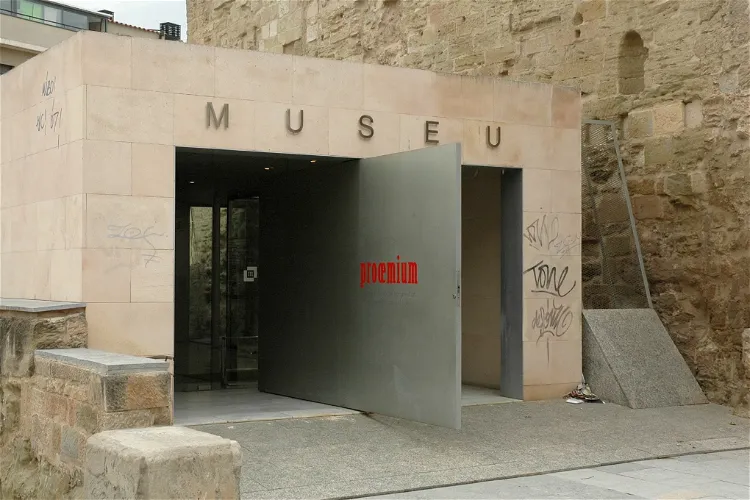
Lleida Museum
LleidaThe Lleida Museum, officially known as the Diocesan and Comarcal Lleida Museum, is a significant art and history museum situated in Lleida, Catalonia, Spain. It offers a rich collection of art and historical artifacts, making it a notable destination for those interested in art, history, and culture.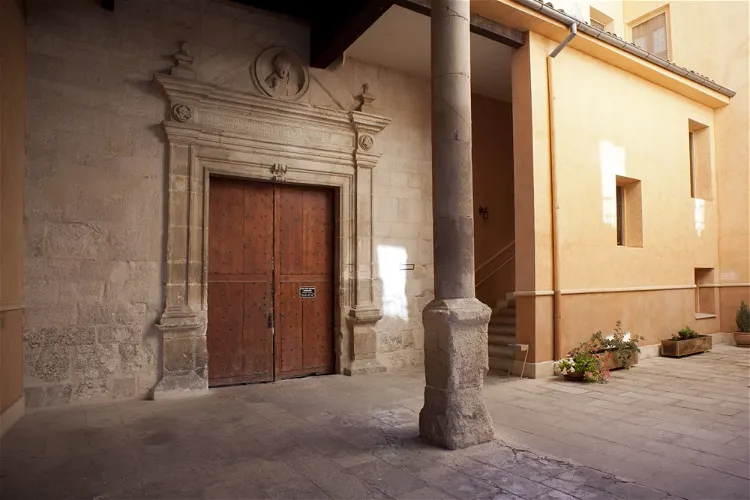
Episcopal Palace of Cuenca
CuencaThe Episcopal Palace is a significant historical building located in the Spanish city of Cuenca. It is home to the Diocesan Museum, which showcases a variety of religious artifacts and artworks. The palace itself is a testament to the city's rich history and architectural prowess, making it a worthwhile visit for those interested in history, architecture, and art.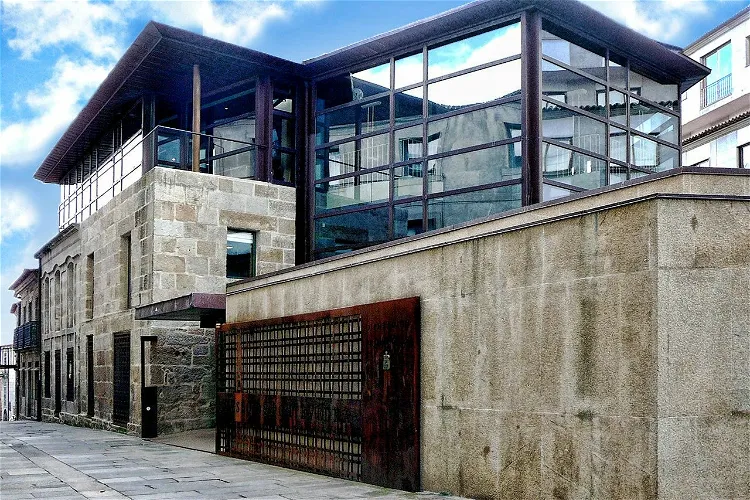
Pontevedra Museum
PontevedraThe Pontevedra Museum, previously known as the Provincial Museum of Pontevedra, is a significant cultural institution located in the Galician city of Pontevedra, Spain. It offers a wide range of art exhibits, with a special focus on the art of Galicia, contributing to the artistic and cultural development of the province.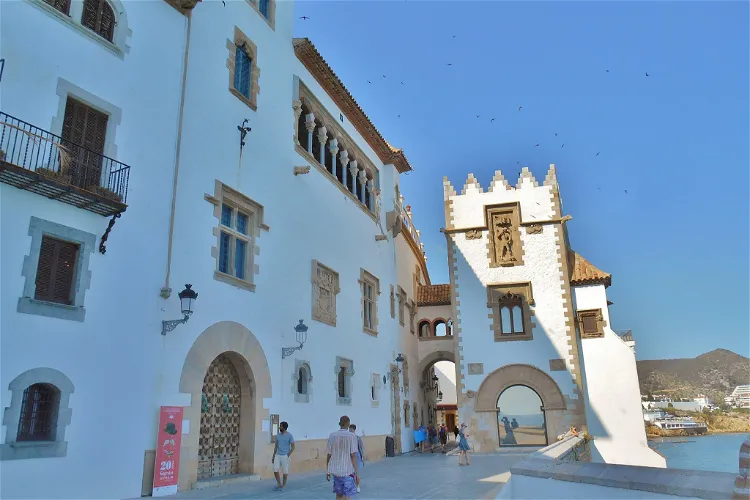
Maricel Museum
SitgesThe Maricel Museum, situated in the heart of Sitges, underwent a significant renovation and reopened its doors in 2015. This central location and its recent refurbishment make it an accessible and modern destination for tourists interested in art and history.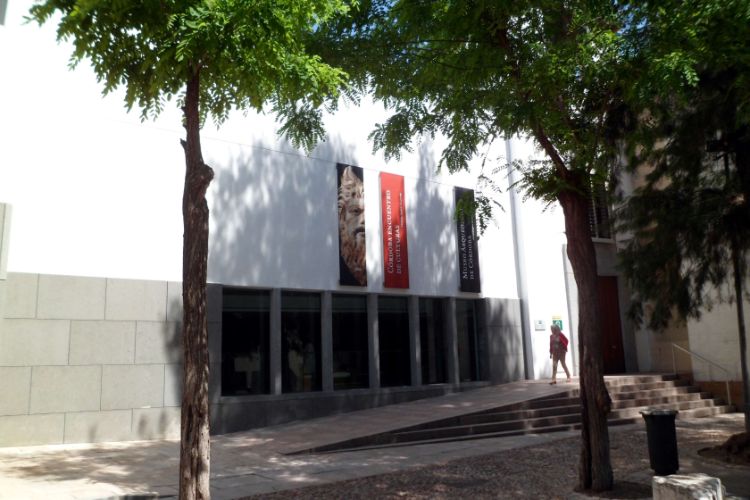
Archaeological Museum of Córdoba
CórdobaThe Archaeological Museum of Córdoba is housed in the former palace of the Páez de Castillejo and a contemporary building built next to it. Its collections consists of a wide variety of pieces that range from Prehistory to the Late Middle Ages. Underground, the museum displays the archaeological rem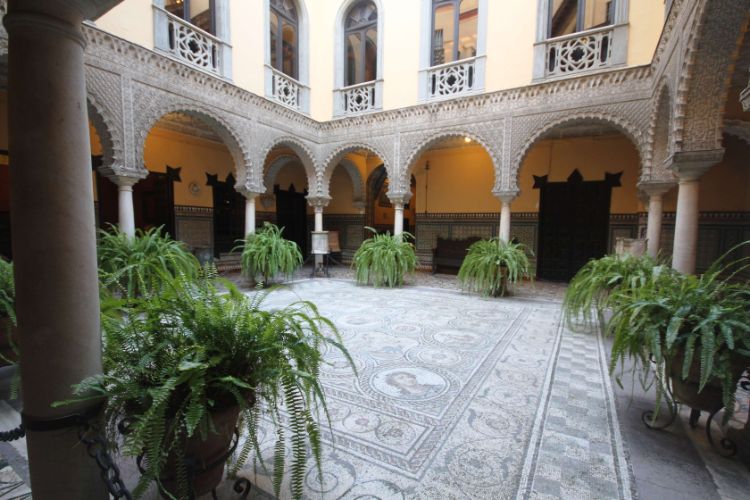
Museo Palacio de la Condesa de Lebrija
SevilleMuseo Palacio de la Condesa de Lebrija (Museum of the palace of the countess of Lebrija or palace of Lebrija) is a house museum/palace in Seville that dates from the 16th century. The museum houses an important art collection with Roman mosaics and other antiquities as well as Asian art, paintings b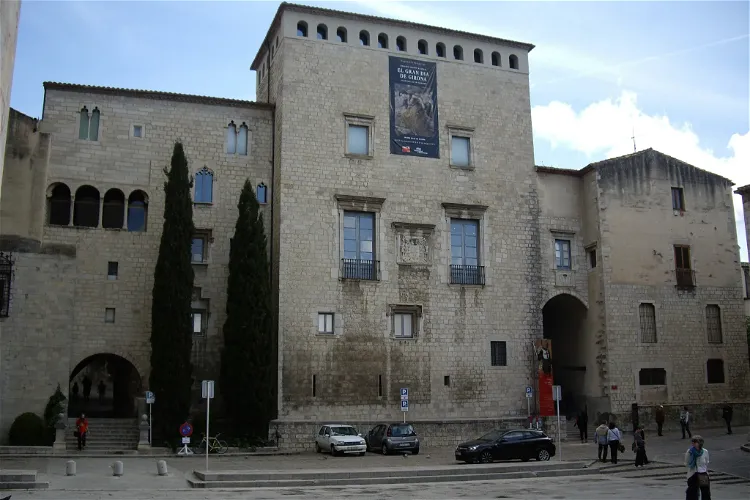
Girona Art Museum
GeronaThe Girona Art Museum, a public institution, was established in 1976. This was achieved by merging the collections of the provincial fine arts museum with those of the Girona Diocesan Museum. This merger resulted in a rich and diverse collection of artworks and artifacts, making the museum a significant cultural institution in the region.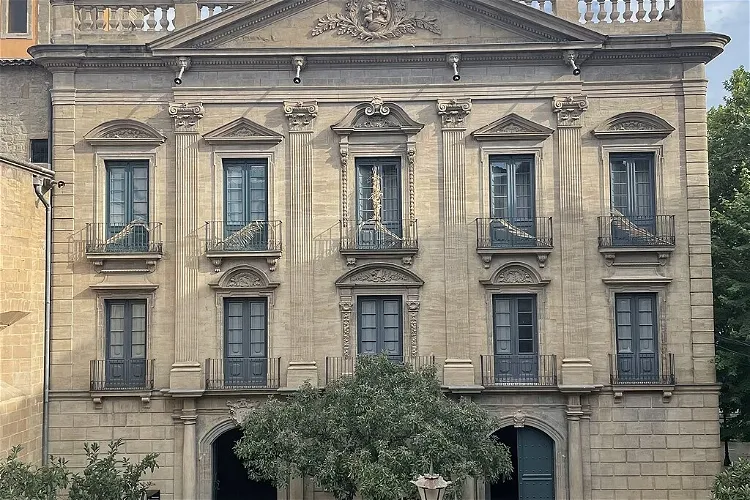
Museo Diocesano y Comarcal de Solsona
SolsonaThe Museo Diocesano i Comarcal de Solsona is an art and archaeology museum situated in Solsona, Catalonia, Spain. It is officially registered in the Registry of Museums of Catalonia, bearing the number 20. This museum is a significant destination for those interested in medieval art and archaeology.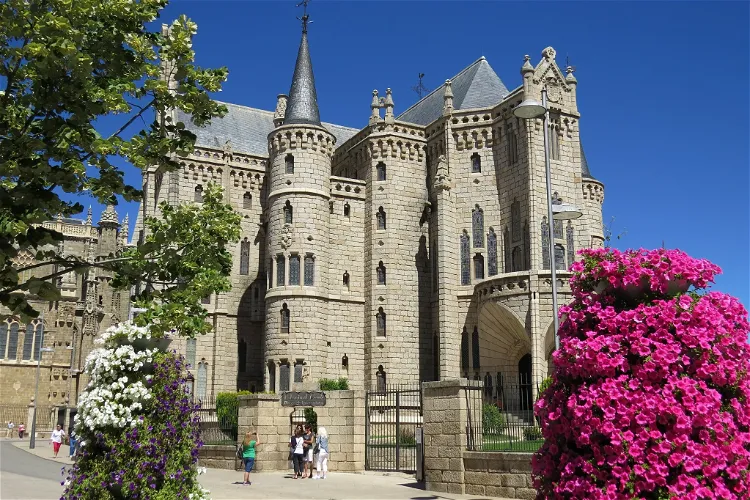
Museo de los Caminos
AstorgaThe Museo de los Caminos, located in the Episcopal Palace of Astorga in the province of León, Spain, is dedicated to the Camino de Santiago. This museum offers a deep dive into the history and significance of this famous pilgrimage route.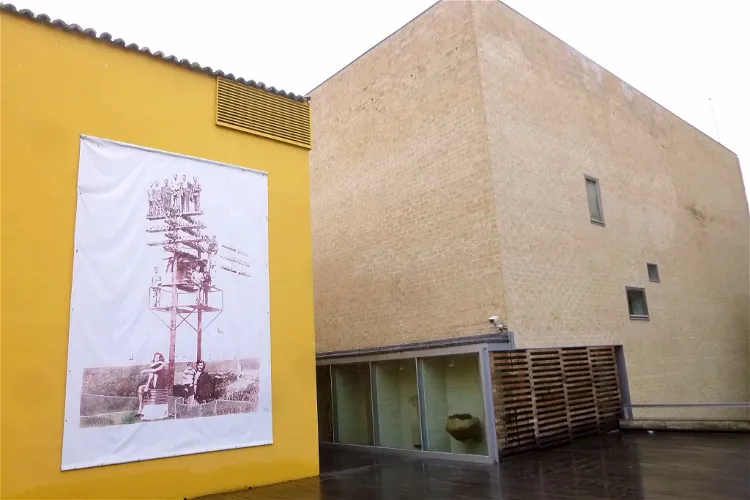
Zamora Museum
ZamoraThe Zamora Museum, a provincial museum, is situated in the Santa Lucía square in Zamora, Spain. This location is in a neighborhood known as Puebla del Valle during medieval times. The museum is a significant cultural institution in the region, offering a glimpse into the area's rich history and heritage.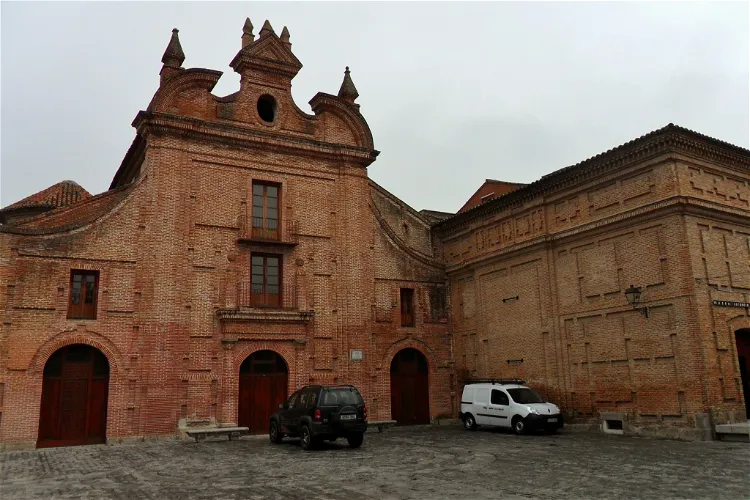
Ruiz de Luna Ceramic Museum
Talavera de la ReinaThe Ruiz de Luna Ceramic Museum is situated in the city of Talavera de la Reina, in the province of Toledo, Spain. This museum is a significant cultural landmark in the region, offering visitors a unique insight into the rich history and tradition of ceramics in the area.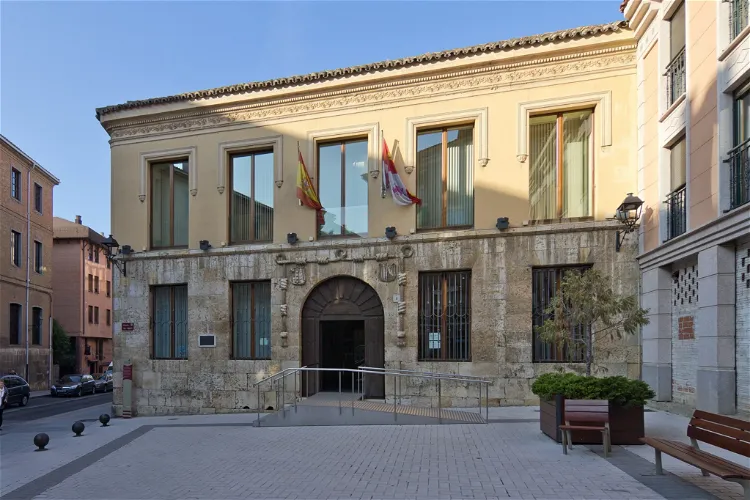
Archaeological Museum of Palencia
PalenciaThe Archaeological Museum of Palencia, situated in the Casa del Cordón, is a significant cultural institution in the city of Palencia, Spain. It boasts a diverse collection of artifacts from prehistoric, Roman, and medieval periods, all originating from the province of Palencia. The museum provides a unique opportunity to delve into the rich history and heritage of the region.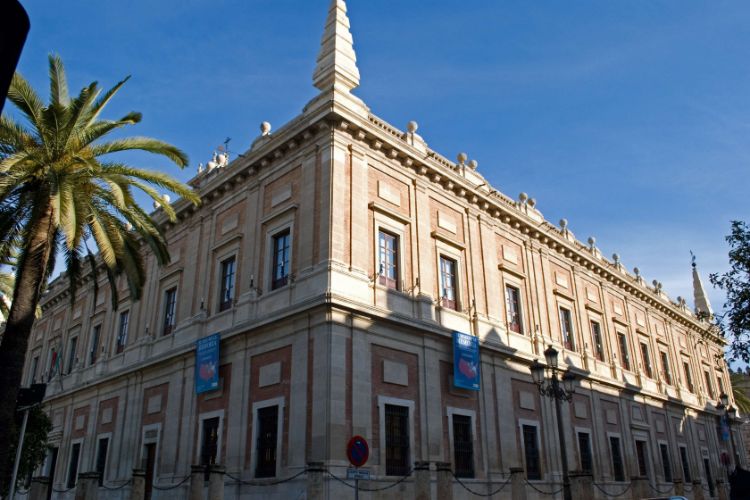
Archivo General de Indias
SevilleArchivo General de Indias (The General Archive of the Indies) is housed in the ancient merchants' exchange of Seville and holds the valuable archival documents that illustrate the history of the Spanish Empire in the Americas and the Philippines. The building, called Casa Lonja de Mercaderes, is a g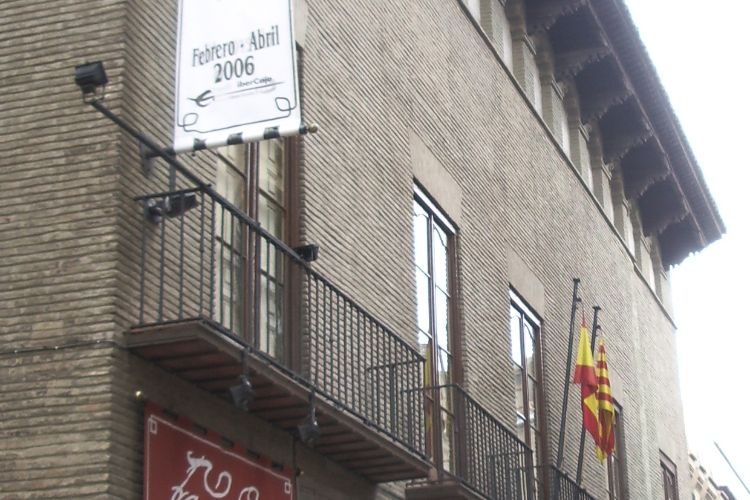
Museo Goya Colección Ibercaja
ZaragozaMuseo Goya Colección Ibercaja (The Goya Museum - Ibercaja Collection - Camón Aznar Museum) is a museum of fine arts in Zaragoza, housed in the Pardo Renaissance palace. The museum houses more than 1,000 works, of which around 500 are exhibited in the permanent exhibition. The collection of works of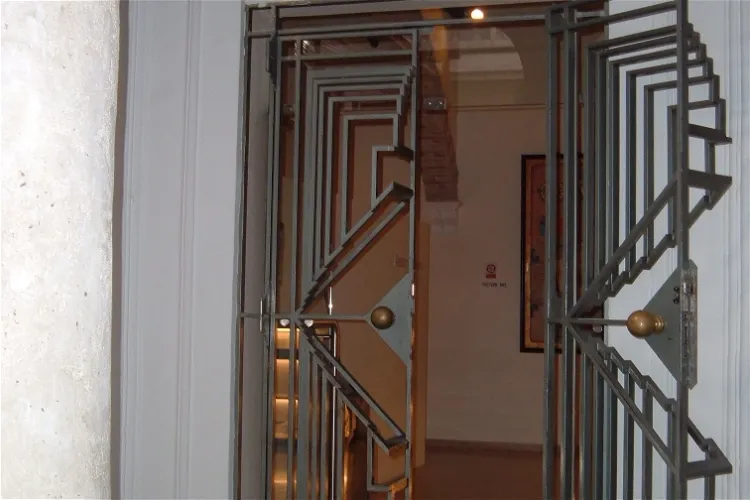
Municipal Archaeological Museum of Villena
VillenaThe Municipal Archaeological Museum of Villena, also known as the José María Soler Archaeological Museum, is housed in the Town Hall, a Renaissance building dating back to the early 16th century. This location adds a historical charm to the museum, making it a unique place to explore the rich archaeological findings of the region.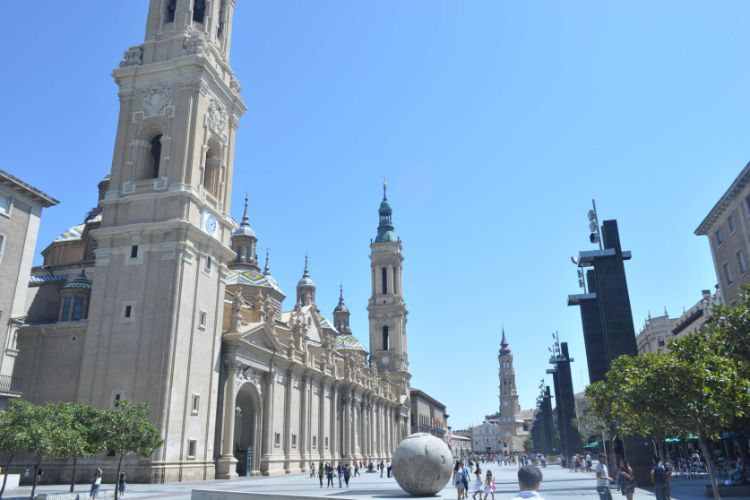
Museo de Tapices y Capitular de la Seo
ZaragozaMuseo de Tapices y Capitular de la Seo (La Seo Chapterhouse Tapestry Museum) is housed in the La Seo Cathedral. The museum holds a large collection of tapestries that belong to the Cathedral Chapter. The collection of the museum comprises 63 Flemish tapestries and 6 pieces of heraldic embroidery, ma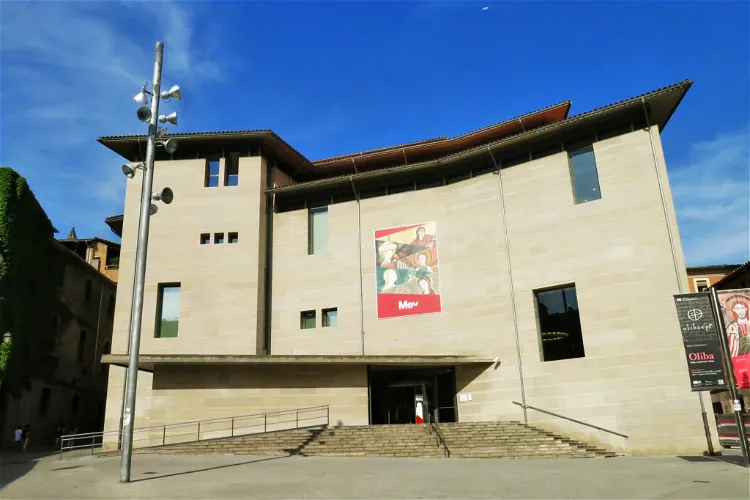
Episcopal Museum of Vic
FolguerolesIn 1995, under the architectural direction of Alfons Milà and Frederic Correa, the old school of Sant Josep, located next to the cathedral, was rebuilt to house the museum's large collections. This move was necessitated by the significant increase in the museum's collections. The new building was designed to accommodate the vast array of artifacts and works of art that the museum had acquired over the years.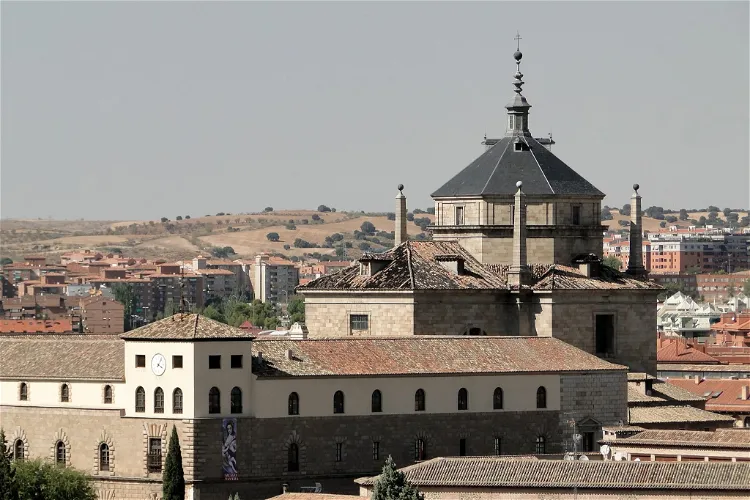
Hospital Museum of Tavira
ToledoThe Hospital de Tavera, also known as the Hospital de San Juan Bautista, Hospital de afuera, or simply as Hospital Tavera, is a significant example of Renaissance architecture situated in the Spanish city of Toledo. This historical building, built between 1541 and 1603, is dedicated to John the Baptist and also served as a pantheon for its patron, Cardinal Tavera. The building's design and construction were overseen by several architects, with Bartolomé Bustamante completing the work.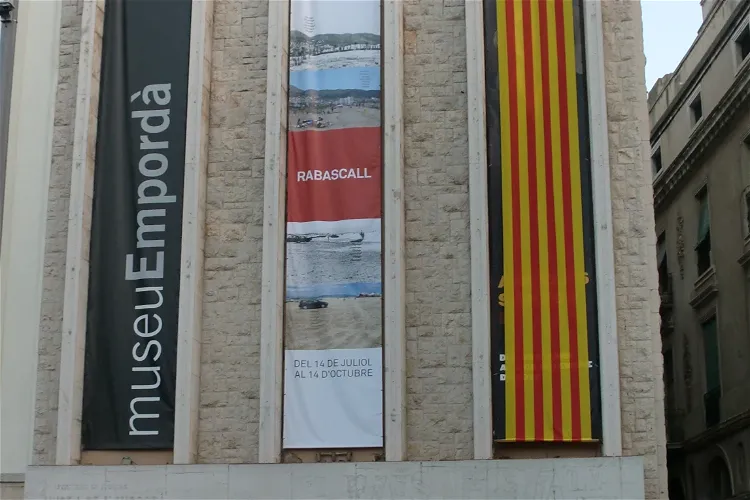
Museum of the Empordà
FigueresThe Museum of the Empordà is an art museum located in Figueres, a city in Catalonia, Spain. It is a destination for art enthusiasts and tourists alike, offering a rich collection of artworks from various periods and styles.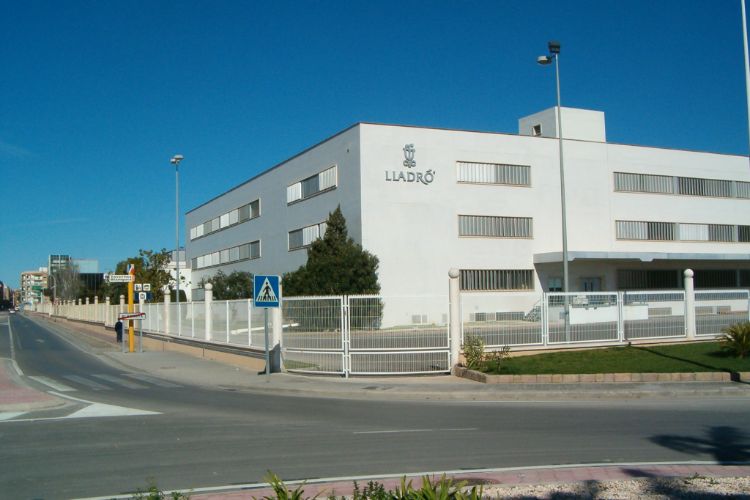
The Lladró Museum
ValenciaThe Lladró Museum is the private center that belongs to the well-known decorative porcelain firm Lladró. The museum has two permanent exhibits, the Historic Porcelain Museum and the Painting Collection. The Lladró Historical porcelain collection consists of pieces that are already removed from the c- 50
Diocesan Museum of Tarragona
TarragonaThe Diocesan Museum of Tarragona is a significant part of the Archbishopric of Tarragona. It is conveniently located within the cathedral complex of the Tarragona Cathedral, making it easily accessible for visitors who are exploring the cathedral and its surroundings. 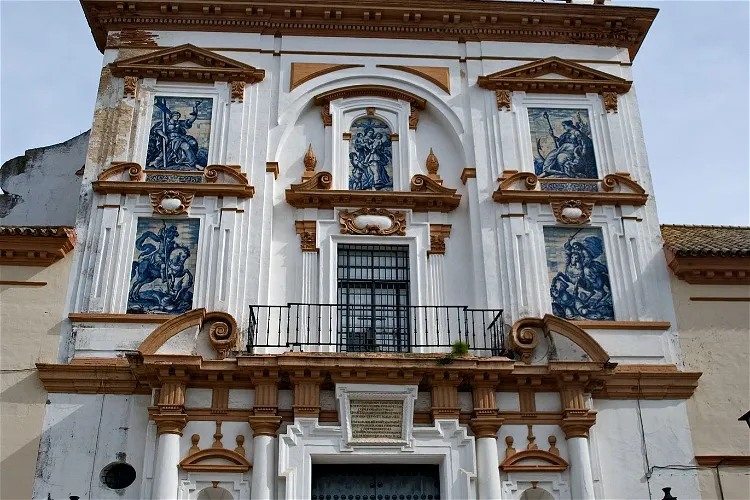
Hospital de la Caridad (Seville)
SevilleThe Hospital de la Caridad, located near the Plaza de toros de la Real Maestranza de Caballería de Sevilla, is a Roman Catholic baroque charity hospital. This historic building is a significant part of Seville's architectural heritage and offers a glimpse into the city's past.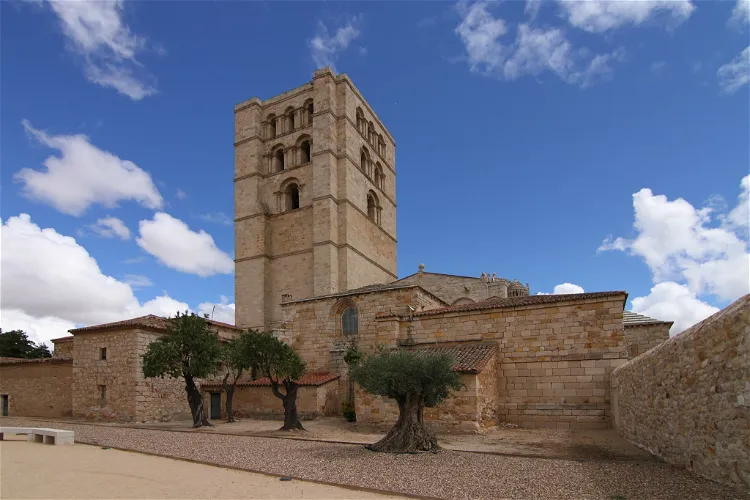
Zamora Cathedral Museum
ZamoraThe Zamora Cathedral Museum, the main museum of the Zamora diocese, was inaugurated in 1926. Its primary purpose is to house and display works from the Cathedral and other parishes of the diocese to the public. This museum is a significant part of the cultural and historical heritage of the region, offering visitors a chance to explore and appreciate the rich artistic legacy of the diocese.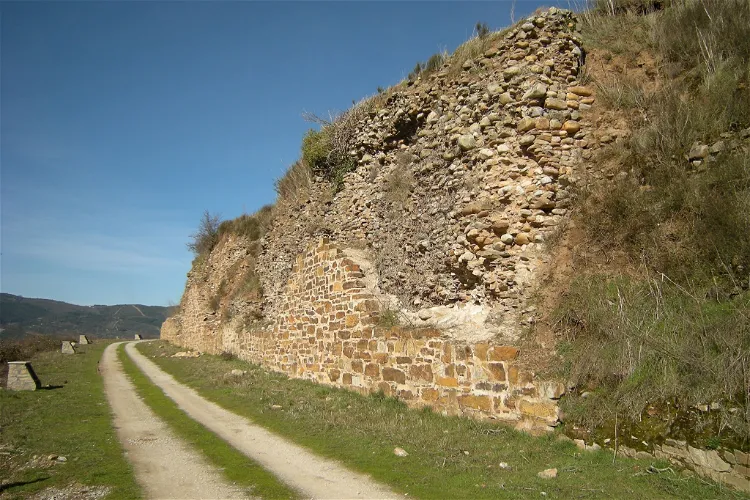
Museo Arqueológico de Cacabelos
CacabelosThe Museo Arqueológico de Cacabelos is conveniently located in the center of Cacabelos, aligning with the famous Camino de Santiago. The museum is situated on a street that is characterized by its Jacobean style, adding to the historical charm of the area. This location makes it an accessible and interesting stop for those walking the Camino de Santiago.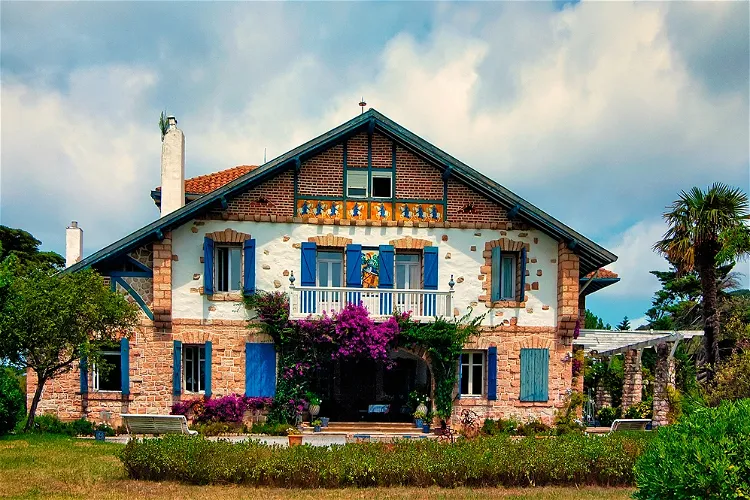
Zuloaga's House-Museum
ZumayaThe Ignacio Zuloaga Museum is a unique destination for art lovers. Located within the historic Pedraza Castle in the province of Segovia, Castilla y León, the museum is dedicated to the works of the renowned Basque painter Ignacio Zuloaga. Visitors can explore the rich collection of Zuloaga's works, gaining insight into his artistic journey and the cultural context in which he created his masterpieces.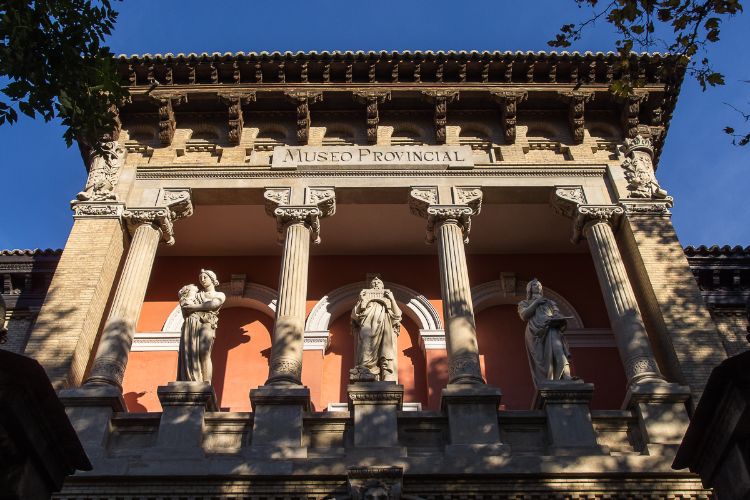
Museo de Zaragoza
ZaragozaThe Museum of Zaragoza (Museo de Zaragoza) is a Spanish national museum located in the city of Zaragoza, housed in a neo-Renaissance building built for the Hispano-French Exposition of 1908 by the architects Ricardo Magdalena and Julio Bravo. The museum holds a collection of notable works of archaeo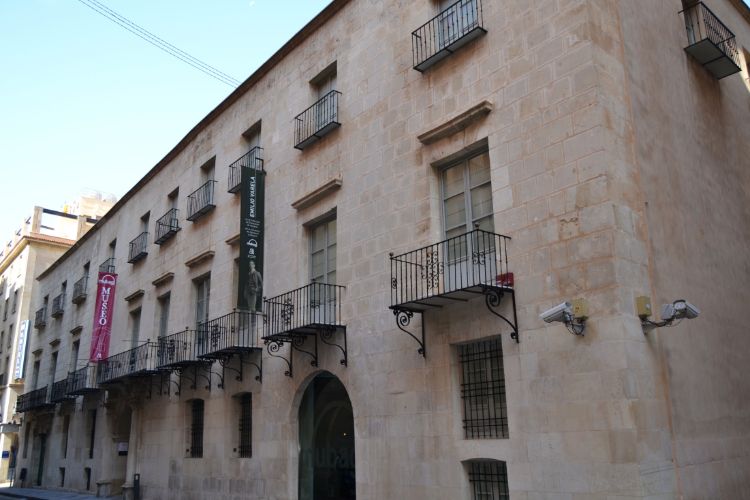
Museo de Bellas Artes Gravina - MUBAG
AlicanteMuseo de Bellas Artes Gravina (MUBAG, The Museum of Fine Arts Gravina) is an art museum in Alicante that is housed in the palace of the Count of Lumiares, a four-storey building built between 1748 and 1808. This museum holds a collection of paintings and sculptures from Alicante, from the 16th centu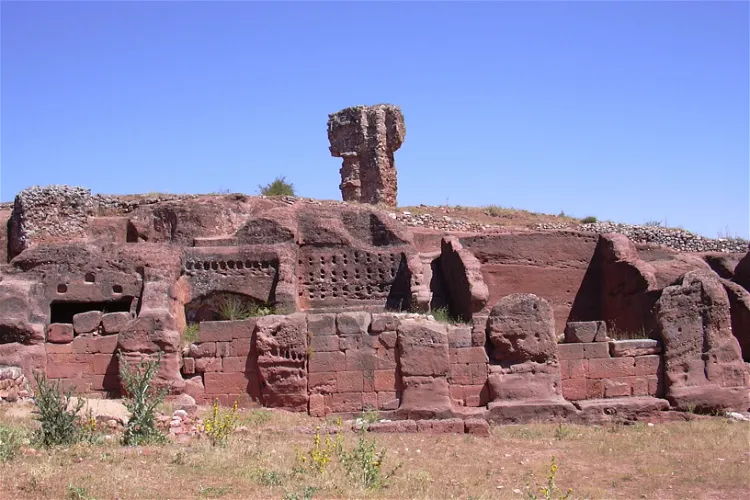
Museo Monográfico de Tiermes
Montejo de TiermesThe Museo Monográfico de Tiermes is a museum situated in Montejo de Tiermes, Soria, Spain. It forms part of the Yacimiento-Museo de Tiermes, a significant archaeological site. The museum is dedicated to collecting and displaying archaeological materials from the excavations of the Celtiberian, Roman, and medieval city ruins of Tiermes.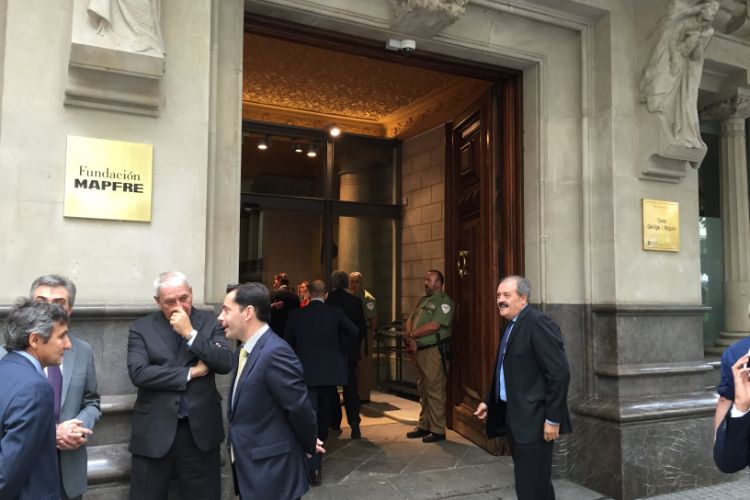
Fundacio Mapfre
BarcelonaFundacio Mapfre shows a large collection of art coming from various periods of history gathered by Francisco Godia.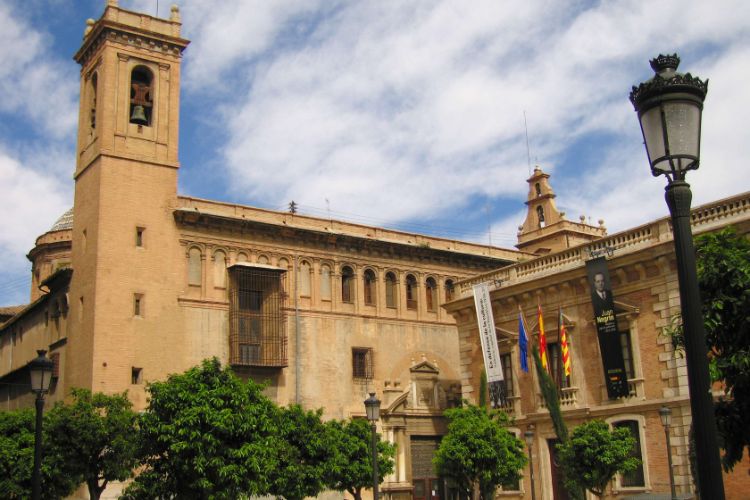
Museo del Patriarca
ValenciaThe Patriarca, Real Colegio and the Seminario del Corpus Christi are a church, a seminary and a college respectively. Work on the buildings began in 1586 and finished in 1610. The Patriarca in Valencia is a good examples of Renaissance architecture. In the Museo del Patriarca (the Musuem of the Patr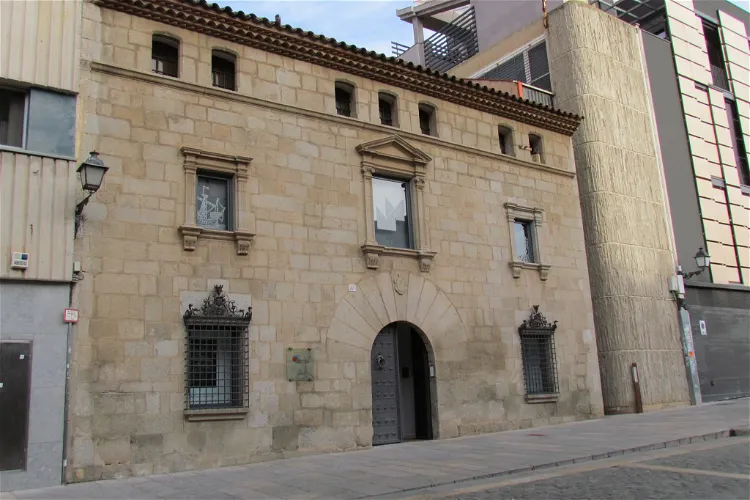
Mataró Museum
MataróThe Mataró Museum is a Spanish museum institution located in Mataró, a city in the Maresme region of Barcelona. The museum's headquarters are in Can Serra, a building constructed in 1565 that showcases the Renaissance architectural style. This historical building adds a unique charm to the museum, making it a fascinating place for tourists interested in history and architecture.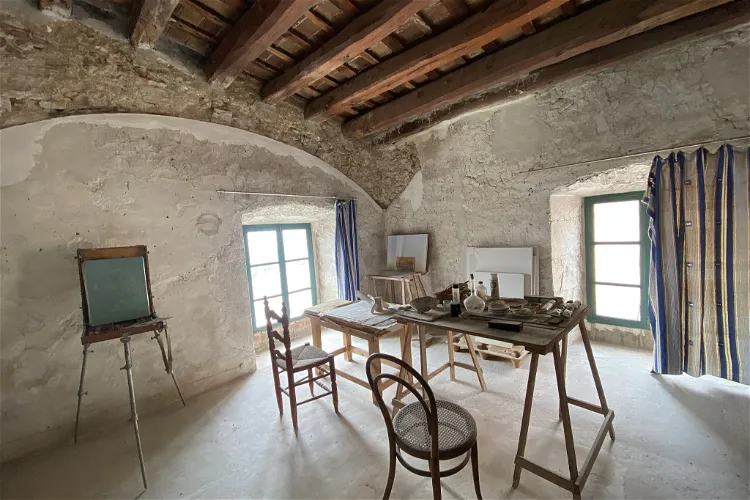
Apel·les Fenosa Museum
El VendrellThe Apel·les Fenosa Foundation is a museum dedicated to the life and works of the Catalan sculptor Apel·les Fenosa. It is located in a building known as the Casa del Pardo, at Major Street, 25. in El Vendrell, Tarragona. The museum's primary mission is to preserve and disseminate the legacy of this renowned artist.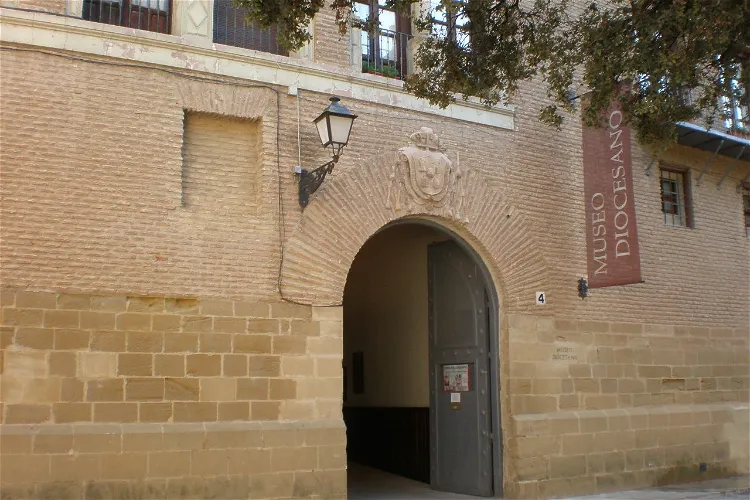
Diocesan Museum of Huesca
HuescaThe Diocesan Museum of Huesca is a sacred art museum that operates under the jurisdiction of the Bishopric of Huesca and the Chapter of the Cathedral of Huesca. This museum is a significant part of the city's historical and cultural heritage, offering visitors a unique insight into the religious art and history of the region.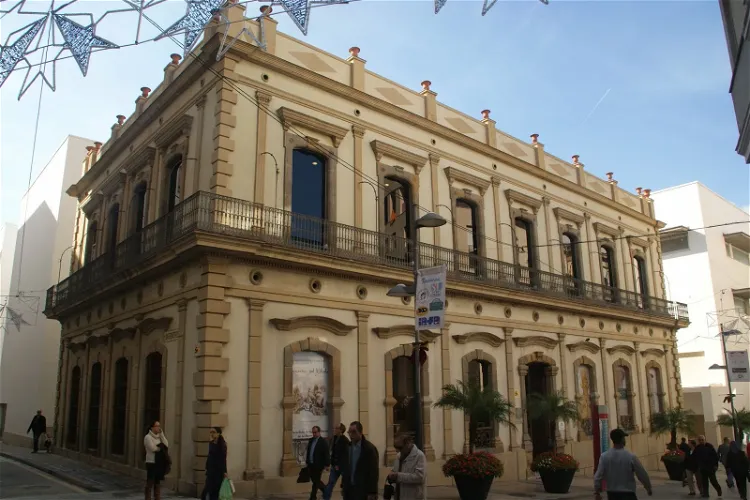
Museum of the Ravelin
CeutaThe Museum of Ceuta, also known as the Museum of the Ravelin, is situated in the city of Ceuta, Spain. The museum is housed in the former Military Pavilion of the Ravelin Barracks, a historic building that adds to the overall charm and appeal of the museum. Visitors can expect to see a variety of archaeological pieces from the region of the Strait of Gibraltar, spanning from the Ancient Age to the Early Modern Age.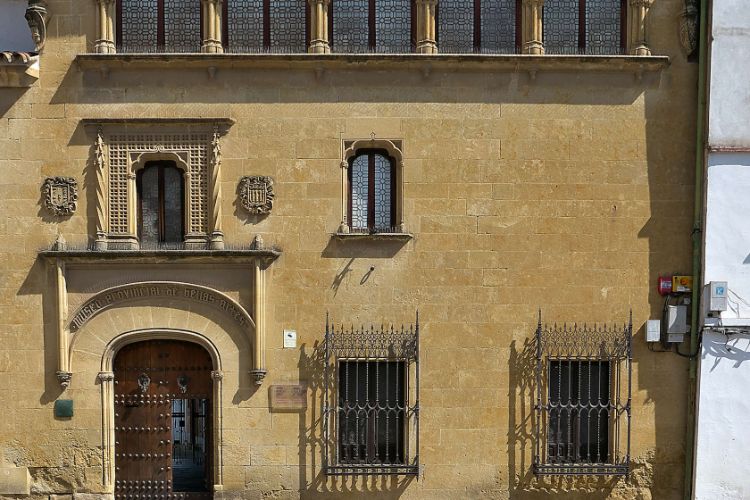
Museum of Fine Arts of Córdoba
CórdobaThe Museum of Fine Arts of Córdoba is housed in the building of the former Hospital of the Charity, which also houses the Museum Julio Romero de Torres. The exhibitions in the Museum of Fine Arts of Córdoba show the artistic activity and movements in Córdoba from the 14th century to the present. Bec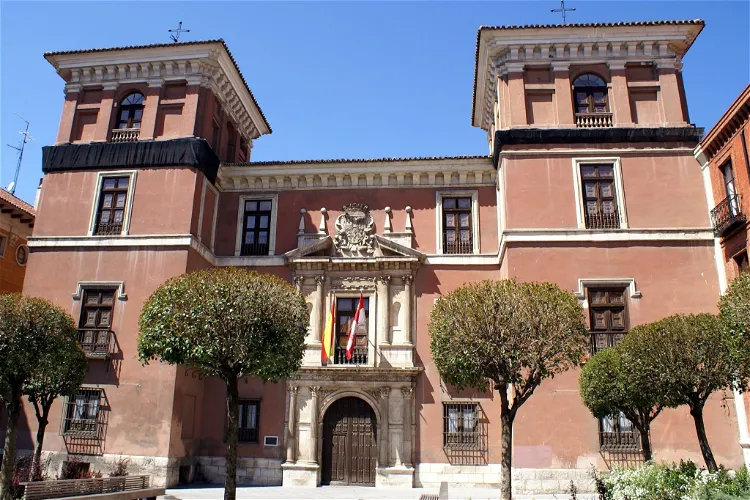
Fabio Nelli Palace
ValladolidThe Palacio de Fabio Nelli, located in Valladolid, Spain, is a significant Renaissance building. Historians and critics regard it as a prime example of the city's classical civil architecture. The palace's construction, which lasted for about twenty years, was influenced by the good relations between the sponsor, banker Fabio Nelli, and the architect Pedro of Mazuecos El Mozo. The palace's facade, playground, and stairs epitomize this type of architecture in Valladolid.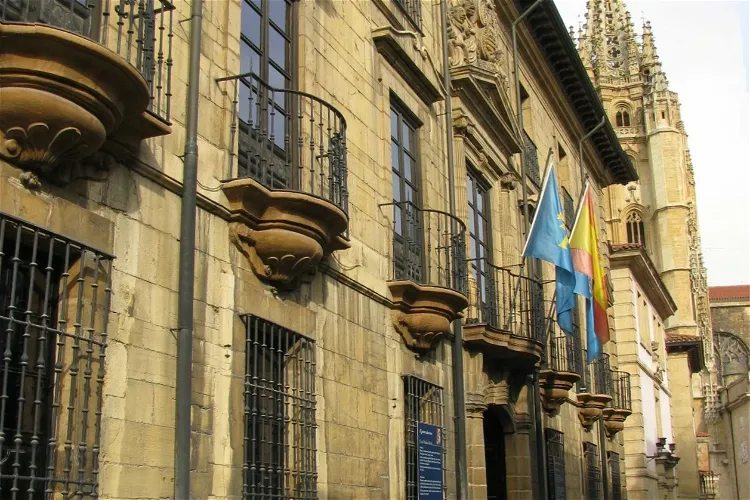
Museum of Fine Arts of Asturias
OviedoThe Museum of Fine Arts of Asturias, inaugurated on May 19, 1980, is home to a vast collection of works spanning from the Middle Ages to the Contemporary Age. This broad timeline allows visitors to experience a comprehensive journey through art history, from the 14th to the 21st Century.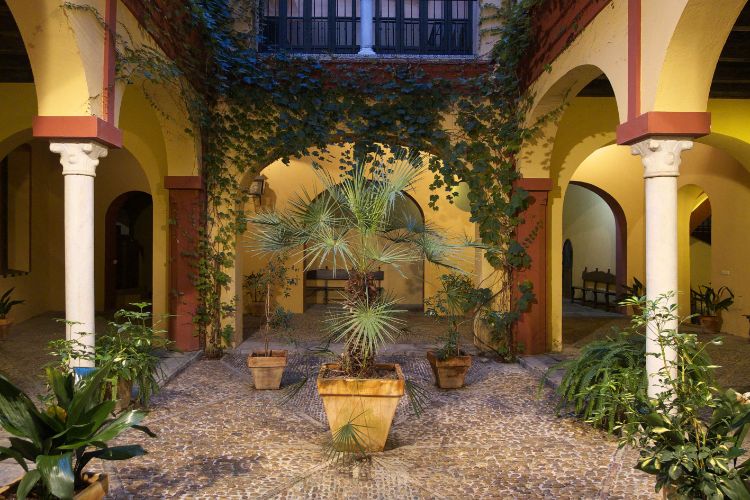
Casa de los Pinelo
SevilleThe Casa de los Pinelo is a Renaissance buidling in Seville that houses the Real Academia Sevillana de Buenas Letras and the Real Academia de Bellas Artes de Santa Isabel de Hungría. The building is a house-palace of medieval origin that was later enriched with different Renaissance elements. The co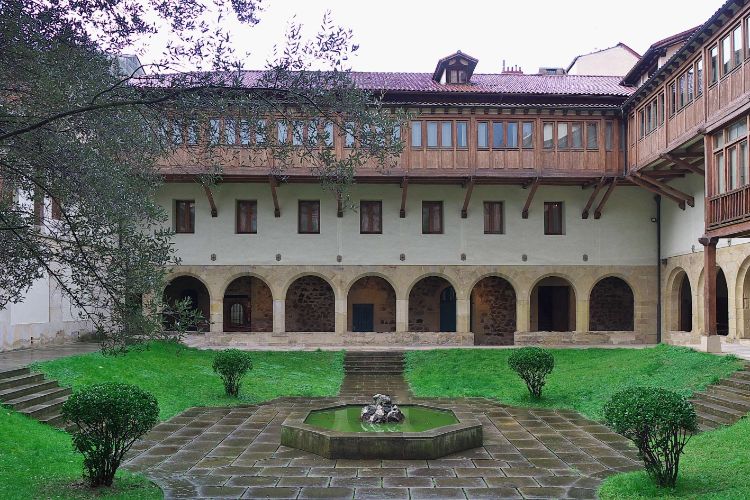
Diocesan Museum of Sacred Art
BilbaoThe Museum of Sacred Art of Bilbao (Museo Diocesano de Arte Sacro, MDAS) is located in the old Convent of the Encarnación in Bilbao. The museum holds a collection of more than 2.300 artworks, of which 500 are exhibited. The objects in its collection date from the 12th to the 20th century and they al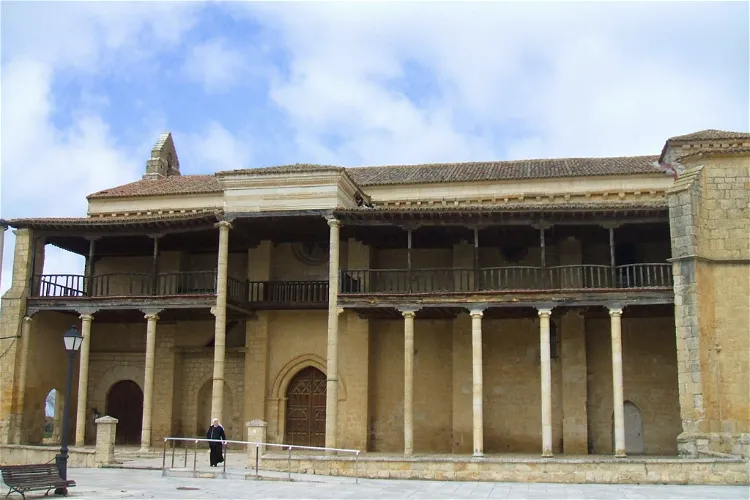
Church of Santa María
Becerril de CamposSince 1971, the Church of Santa María la Antigua has been deconsecrated and serves as one of the locations for the Territorial Museum Campos del Renacimiento. The museum, which was inaugurated on July 10, 1996, offers visitors a chance to explore a wide range of historical and cultural artifacts.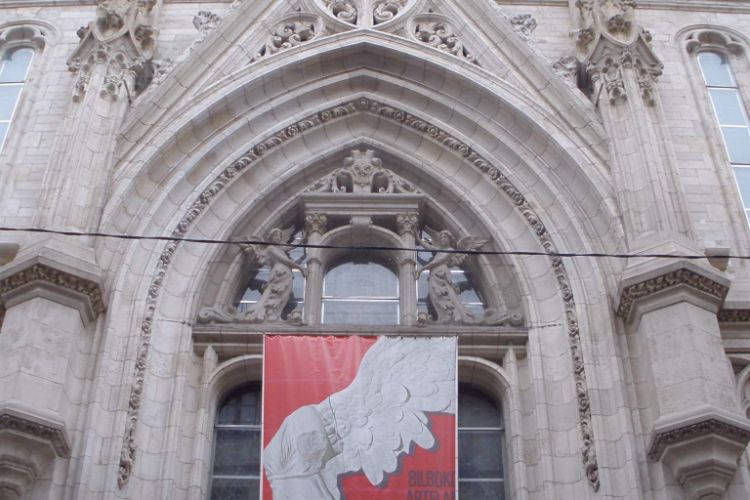
Reproductions Museum Bilbao
BilbaoThe Reproductions Museum Bilbao (Museo de Reproducciones de Bilbao) is one of the oldest museums in Bilbao and aims to reproduce classic works of art. It includes works reproduced from museums such as the Louvre, the Berlin Museum, the Vatican Museums or the British Museum. Examples of art works dis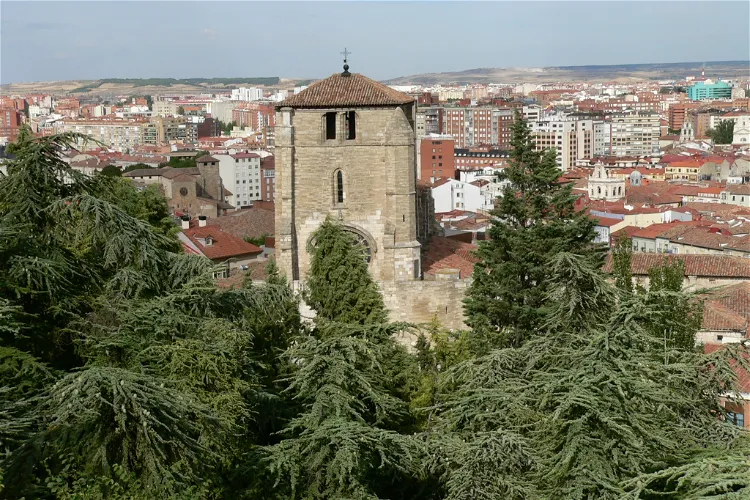
Iglesia de San Esteban
BurgosThe Retablo Museum boasts a collection of altarpieces dating from the 15th to the 18th century, sourced from various locations within the province of Burgos. Additionally, the museum displays a selection of religious goldsmithing. This provides a rich insight into the religious art and craftsmanship of the period.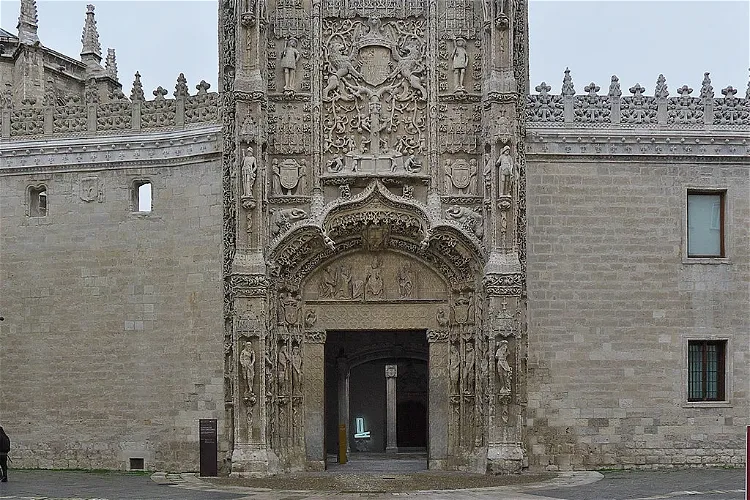
National Museum of Sculpture
ValladolidThe Museo Nacional Colegio de San Gregorio, located in Valladolid, Spain, is a museum dedicated to religious sculptures and portraits. It offers a unique opportunity to explore the rich history and culture of Spain through its religious art.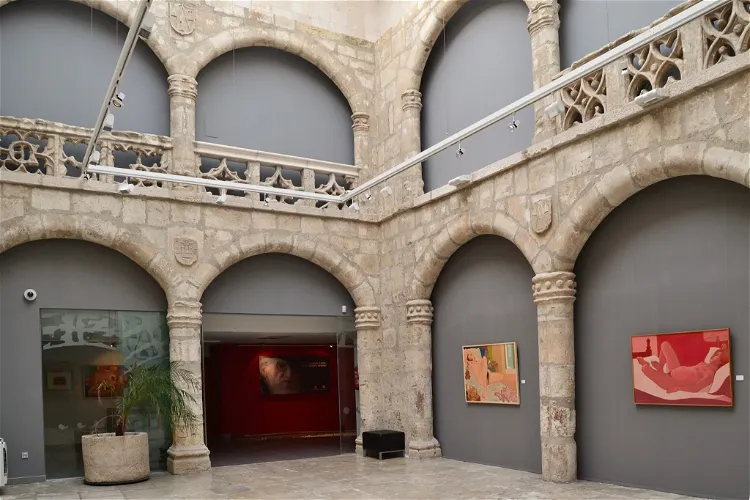
Museo Anatómico
ValladolidThe Museo de la Universidad de Valladolid (MUVa) is a museum located in Valladolid, in the autonomous community of Castilla y León, Spain. It is managed by the University of Valladolid and houses various collections of historical, artistic, and scientific value. The museum's official address is in the Palacio de Santa Cruz, the first Renaissance building constructed in Spain.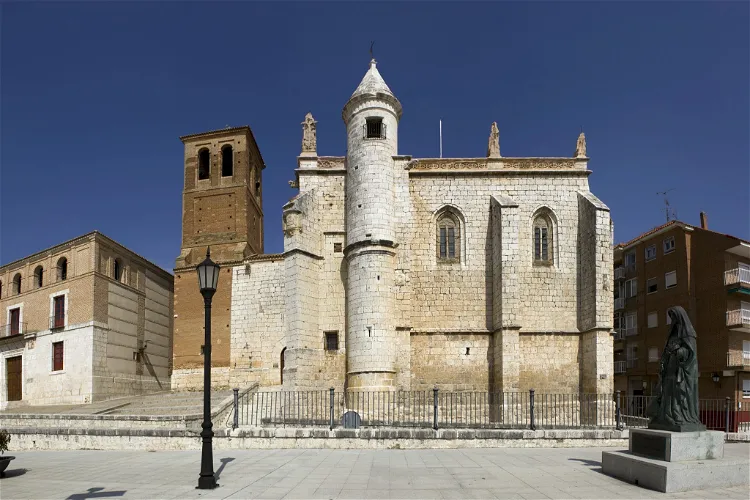
Museum of San Antolin
TordesillasThe Museum of San Antolin is situated in the ancient San Antolin church and parish in the town of Tordesillas, within the province of Valladolid, in the autonomous community of Castile and Leon, Spain. This location offers a unique blend of historical and cultural significance, making it an interesting destination for tourists.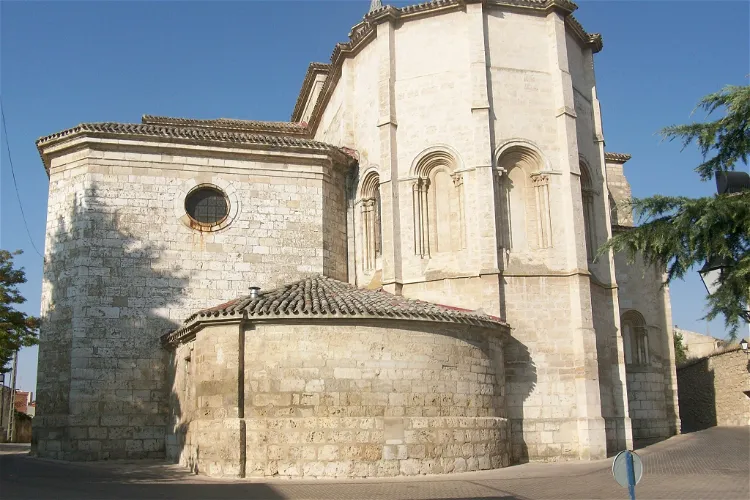
Church of Santa María de la Asunción
DueñasThe Church of Santa María de la Asunción is a significant Catholic place of worship located in the Plaza de la Paz in Dueñas, Spain. This church is part of the historic and artistic ensemble that makes up the historic center of Dueñas. It is a place of great historical and architectural interest, making it a worthwhile stop for tourists visiting the area.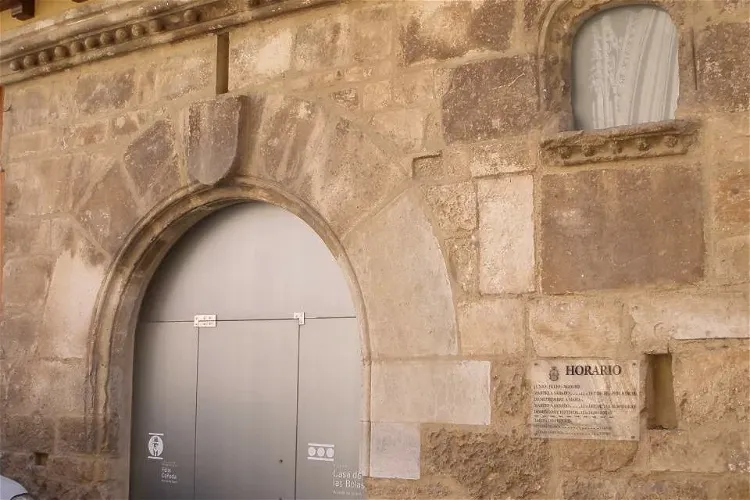
Casa de las Bolas Museum
Aranda de DueroThe Casa de las Bolas Museum in Aranda de Duero, Burgos, is home to a collection of European paintings spanning from the 17th to the 20th century. These works were generously donated to the City Council by mining engineer Félix Cañada Guerrero, who spent his childhood in the city. This collection provides a unique insight into the evolution of European art over several centuries.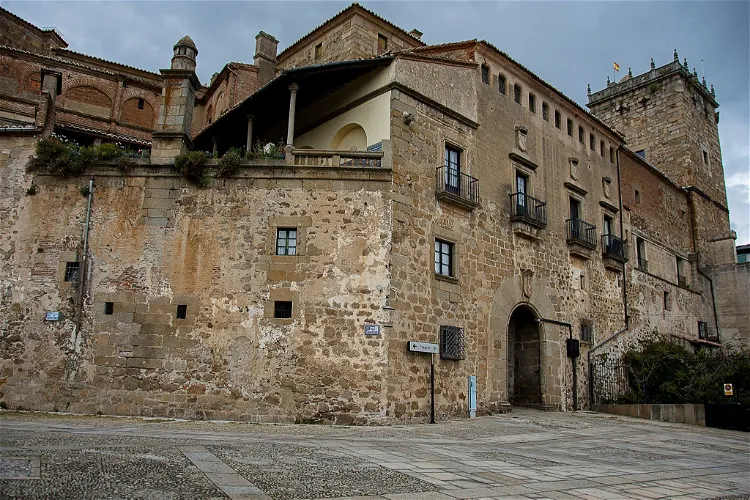
Mirabel Palace
PlasenciaThe Mirabel Palace is a historic building dating back to the 15th century, located in the city of Plasencia, in the autonomous community of Extremadura, Spain. This significant civil building was declared a site of cultural interest in 1977. It was built by Álvaro de Zúñiga and Guzmán and his second wife Leonor Pimentel and Zúñiga, the first Dukes of Plasencia.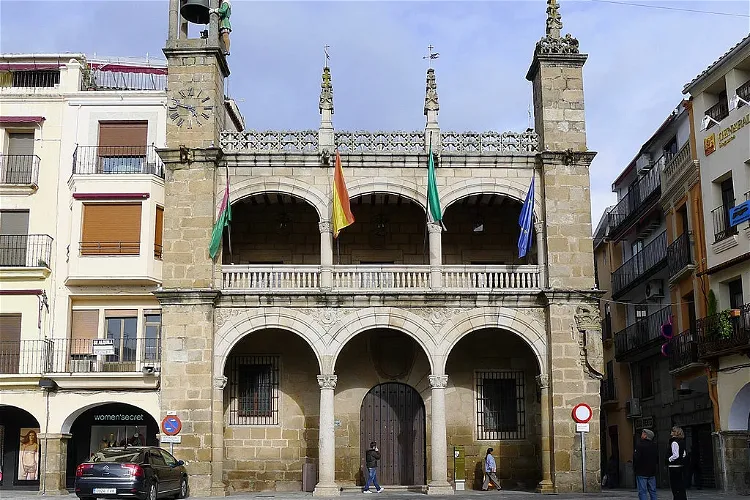
Plasencia City hall
PlasenciaThe Municipal Palace, located in the heart of Plasencia in the Plaza Mayor, serves as the headquarters of the municipality's City Hall. This historic building is a significant landmark in the city and offers a glimpse into the rich history and architectural heritage of Plasencia.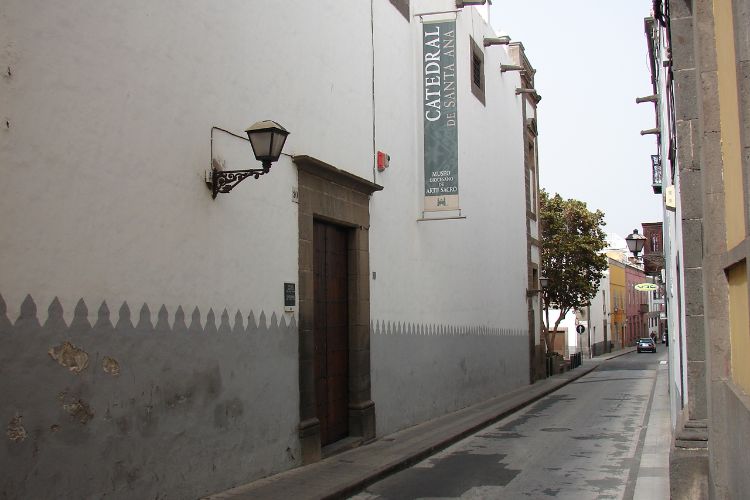
Museo Diocesano de Arte Sacro
Las Palmas de Gran CanariaMuseo Diocesano de Arte Sacro (The Diocesan Museum of Sacred Art of Las Palmas de Gran Canaria) is housed in the so-called Patio de Los Naranjos, built in the 17th century. The old cathedral buildings that surround it, house the museum, that is connected to the cathedral through the so-called Renais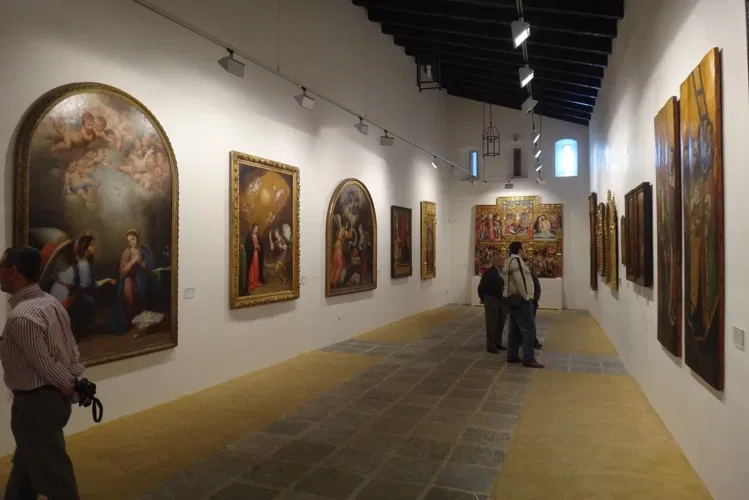
Bodegas Tradicion
Jerez de la FronteraThe Pinacoteca Rivero, also known as the Pinacoteca de Bodegas Tradición, is a permanent exhibition of Spanish works from the Joaquín Rivero Collection. These works are displayed at the Bodegas Rincón Malillo, which is part of the Bodegas Tradición in Jerez de la Frontera, Andalusia, Spain. This collection is considered one of the most important private collections in Andalusia and among the most relevant in Spain.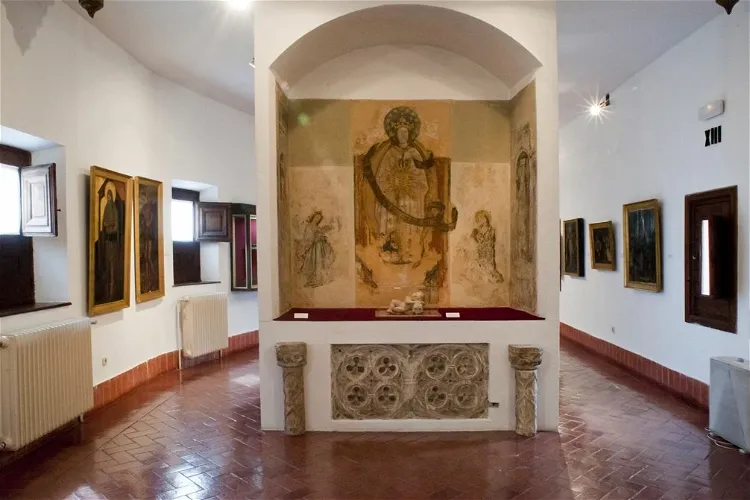
Museo Arqueológico de Valladolid
ValladolidThe Valladolid Museum, established in 1879, is housed in the Fabio Nelli Palace in Valladolid. This historic location has been the museum's home since the 1960s, providing a unique setting for the museum's extensive collections.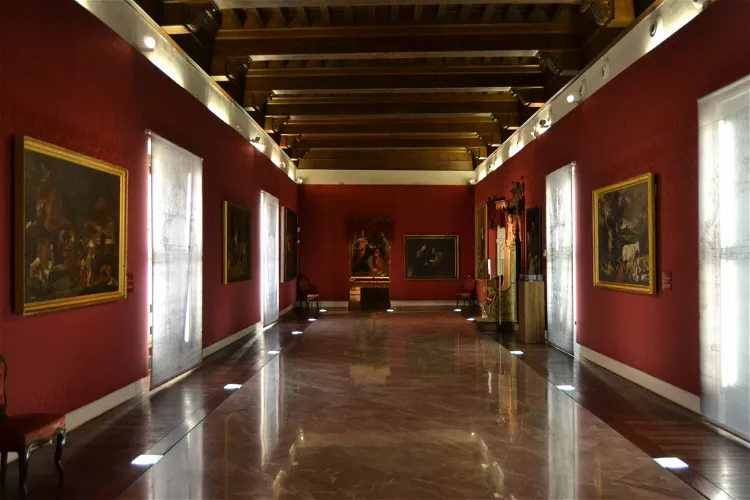
Diocesan Museum of Sacred Art of Orihuela
OrihuelaThe Diocesan Museum of Sacred Art is housed in the Episcopal Palace of Orihuela, a location that has been declared a Site of Cultural Interest. This historic building not only provides a fitting setting for the museum's collection, but is itself a significant part of the cultural heritage of Orihuela. Visitors to the museum will have the opportunity to explore this historic building as they view the museum's collection.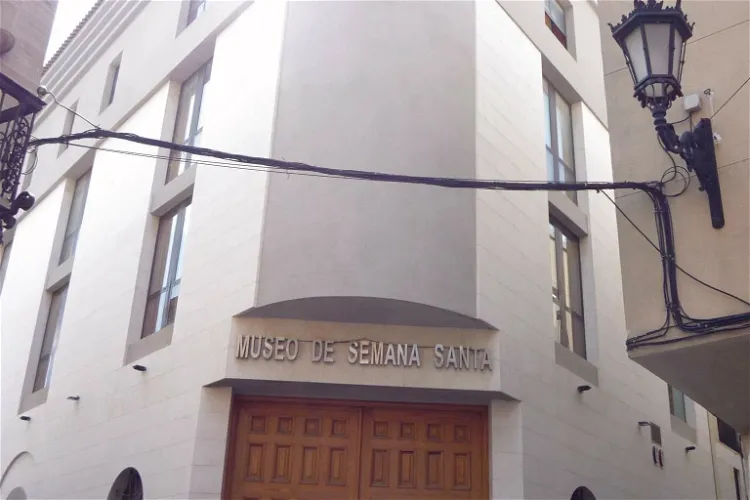
Holy Week Museum
OrihuelaThe Holy Week Museum of Orihuela is situated on the site of the Church of Our Lady of Mercy. This location is significant as it still retains its 16th century Renaissance facade, providing a historical backdrop to the museum's extensive collection of sacred art.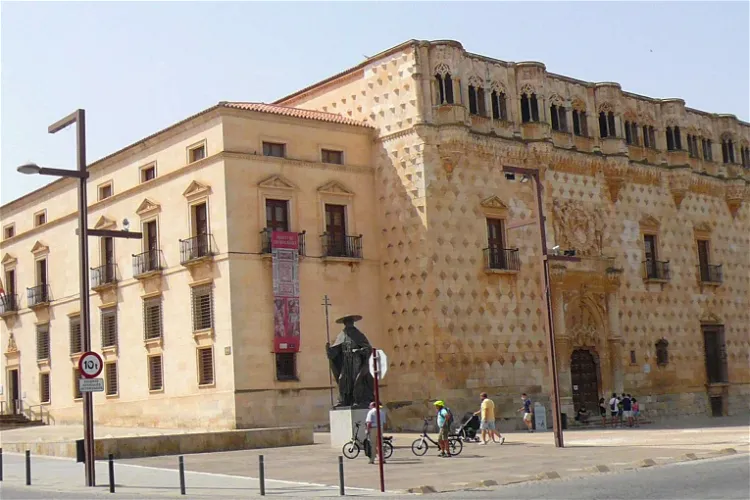
Palace of El Infantado
GuadalajaraThe Palace of El Infantado, located in the city of Guadalajara, Castile, Spain, is an urban residence that was commissioned by Íñigo López de Mendoza in 1480. This historical building is a significant part of the city's heritage and offers a glimpse into the past.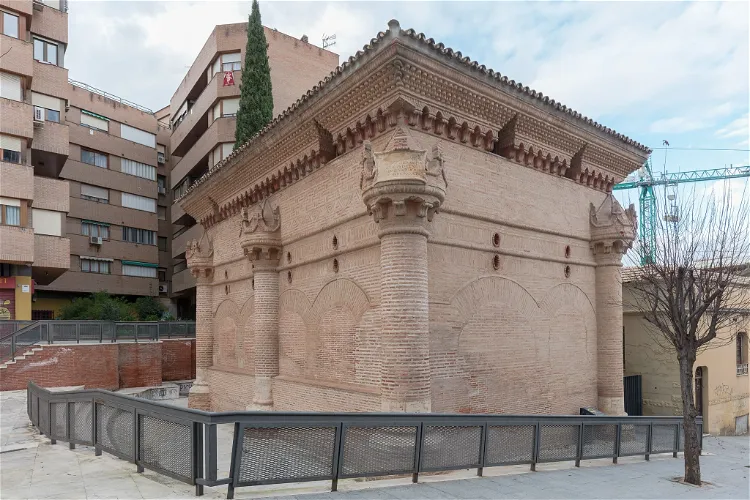
Chapel of Luis de Lucena
GuadalajaraThe Chapel of Luis de Lucena, also known as Nuestra Señora de los Ángeles or de los Urbina, is a significant historical site located in the Spanish city of Guadalajara. It was constructed in the mid-16th century by the humanist Luis de Lucena and was initially connected to the Church of San Miguel until its demolition in 1887. Since then, the chapel has stood as an isolated building, rich in history and cultural significance.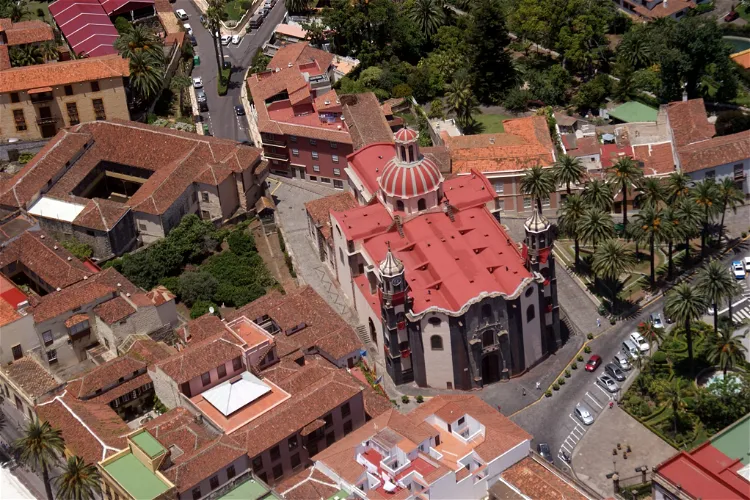
Museum of Sacred Art El Tesoro De La Concepción
La OrotavaEl Tesoro de la Concepción is a museum of sacred art located in La Orotava, Tenerife, Canary Islands, Spain. It is part of the Parish of Our Lady of the Conception and houses a vast collection of religious art and artifacts. The museum's collections span over 500 years of the parish's history and are displayed in seven rooms adjacent to the church.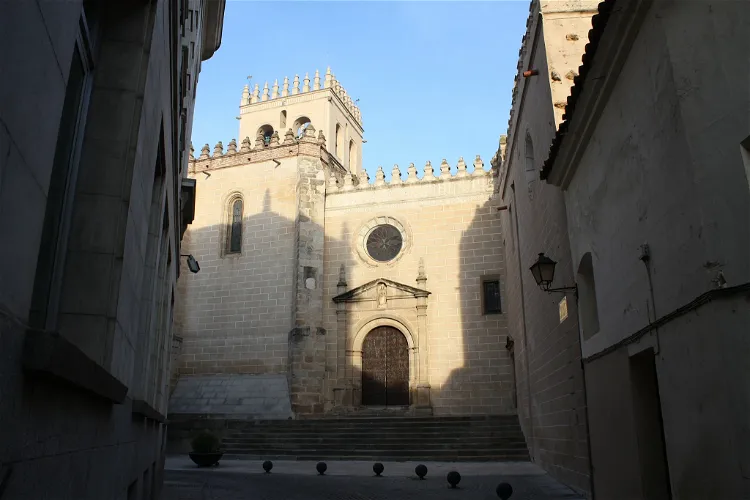
Cathedral Museum
BadajozThe Cathedral Museum of Badajoz is an integral part of the Metropolitan Cathedral of San Juan Bautista de Badajoz. Located in the city of Badajoz, Spain, the museum is a significant part of the cathedral's structure, offering visitors a unique opportunity to explore both the religious and historical aspects of the region.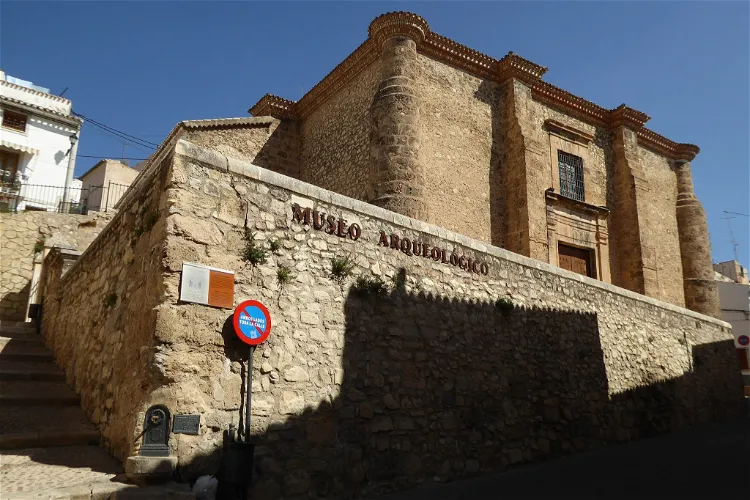
Soledad Municipal Archaeological Museum
Caravaca de la CruzThe Soledad Church, a former fortified Renaissance church from the second half of the 16th century, is located in the town of Caravaca de la Cruz, Spain. Today, it serves as the home of the local Archaeological Museum. This historical building offers a unique blend of religious and historical significance, making it a fascinating destination for tourists interested in both history and architecture.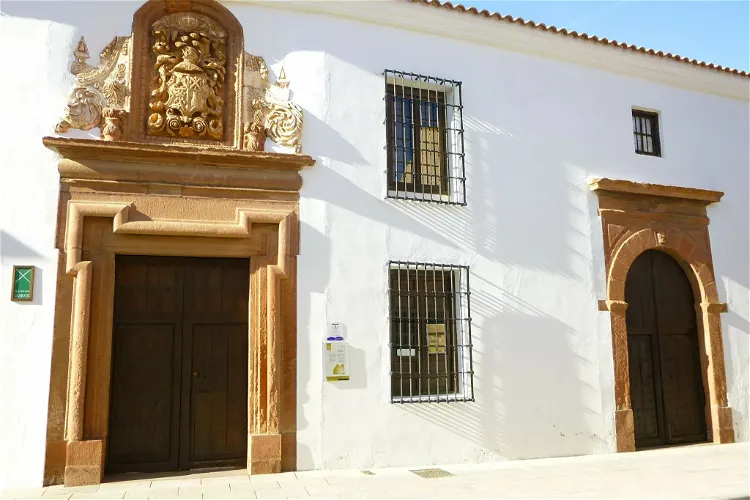
Municipal Museum of Alcázar de San Juan
Alcázar de San JuanThe Municipal Museum of Alcázar de San Juan, located in the old Posada de Santo Domingo in the Municipality of Alcázar de San Juan, is an archeology museum that also hosts contemporary art exhibitions. It is situated in the province of Ciudad Real, in the region of Castilla-La-Mancha, Spain.
Baeza Cathedral
BaezaThe Baeza Cathedral was classified as a cultural asset in 1931, a testament to its historical and architectural significance. Furthermore, since 2003, it has been part of the UNESCO World Heritage, along with other historical buildings in the city. This recognition underscores the cathedral's global importance and makes it a noteworthy destination for tourists.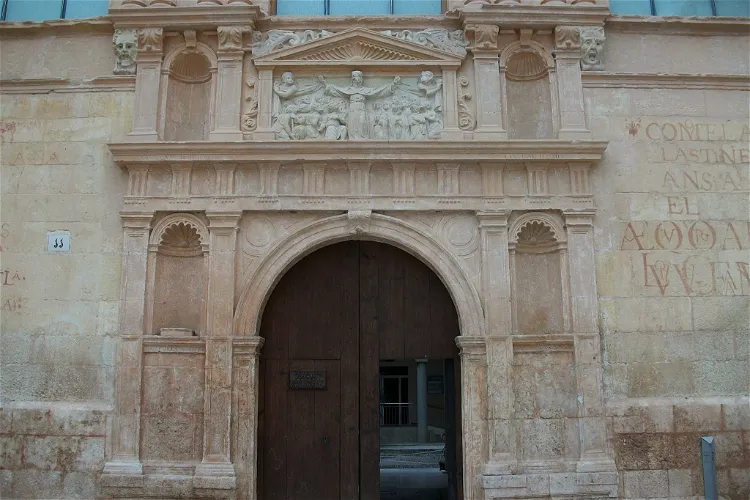
Royal Hospital
JátivaThe Municipal Hospital of Játiva has a rich history that dates back to the 13th century. It was founded by James I of Aragon in 1250, following the reconquest of the city. By the 15th century, the hospital had outgrown its capacity, leading to the need for expansion. This was achieved by acquiring neighboring houses, eventually occupying the entire block. The construction of a new hospital also began during this period, extending into the 16th century. This historical evolution of the hospital provides a fascinating insight into the city's past for tourists.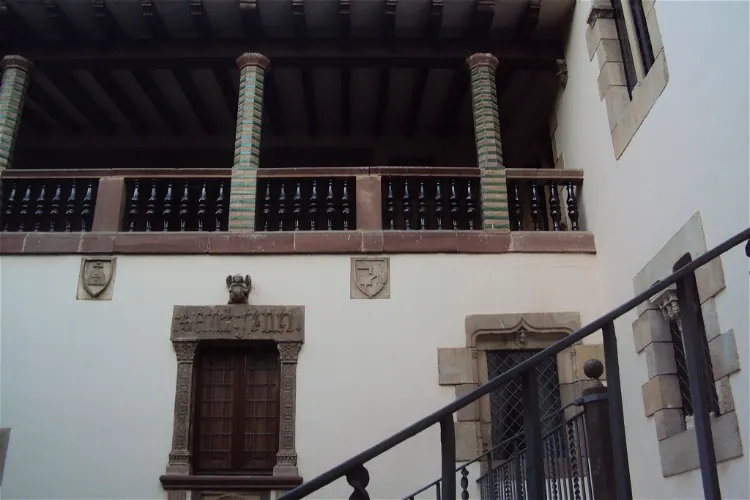
L'Enrajolada Santacana House-Museum
MartorellL'Enrajolada-Casa Museo Santacana, situated in Martorell, a province of Barcelona, is recognized as one of the oldest museums in Catalonia, Spain. The museum was established in 1876 by Francesc Santacana i Campmany and was later continued by his grandson, Francesc Santacana i Romeu. This historical establishment offers a glimpse into the rich cultural heritage of the region.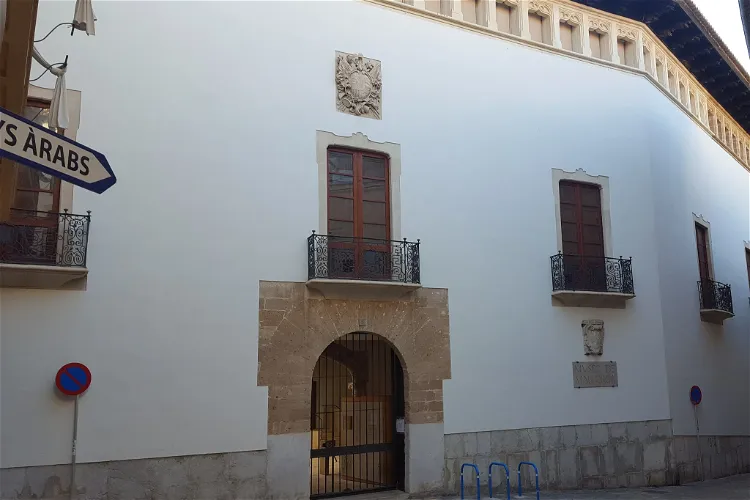
Muro Ethnological Museum
MuroThe Museo de Mallorca is situated in the palace house of the counts of Ayamans, also known as "Ca la Gran Cristiana". This name refers to Catalina Zaforteza y de Togores, a prominent collaborator with the Mallorcan Carlism, who resided there in the 19th century. This historical connection adds a layer of cultural significance to the museum.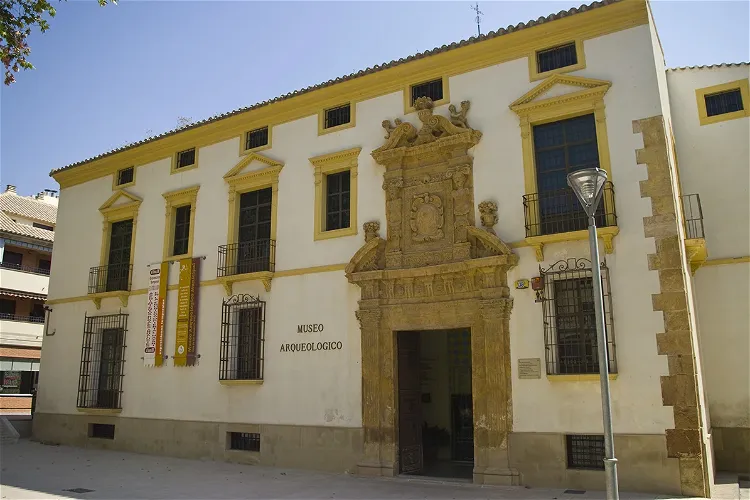
Archaeological Museum of Lorca
LorcaThe Archaeological Museum of Lorca is housed in the beautifully renovated 'House of Salazar', a building that dates back to the early 17th century. This historic setting adds to the charm and authenticity of the museum, making it a fascinating place to explore for any visitor interested in archaeology and history.
Museo de Artes y Costumbres Populares
BegíjarThe Museo de Artes y Costumbres Populares de Begíjar is situated in the historic center of the municipality of Begíjar, in the province of Jaén, Spain. This location is part of the cultural heritage declared by the Junta de Andalucía with integral protection. The museum is dedicated to the research, dissemination, and conservation of historical and anthropological heritage, from the perspective of social processes and respect for cultural diversity.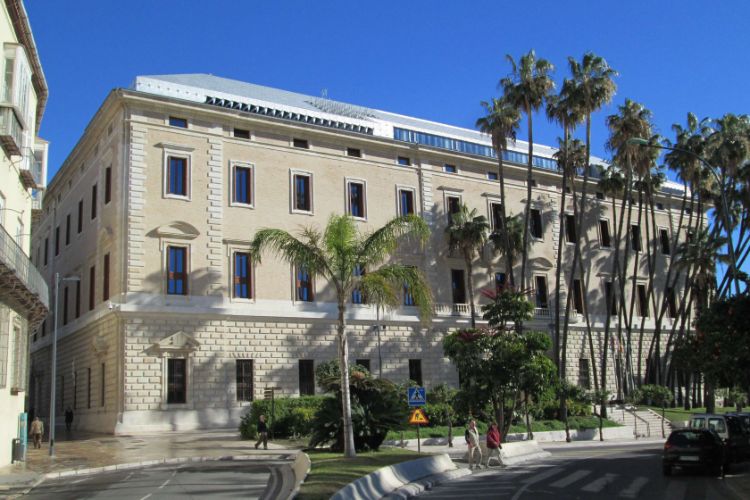
Museo de Málaga
MálagaThe Museo de Málaga is a museum in Málaga that includes the collections of the former Museo Provincial de Bellas Artes and Museo Arqueológico Provincial. The museum holds a collection of more than 2,000 pieces related to the Fine Arts and over 15,000 related to Archaeology.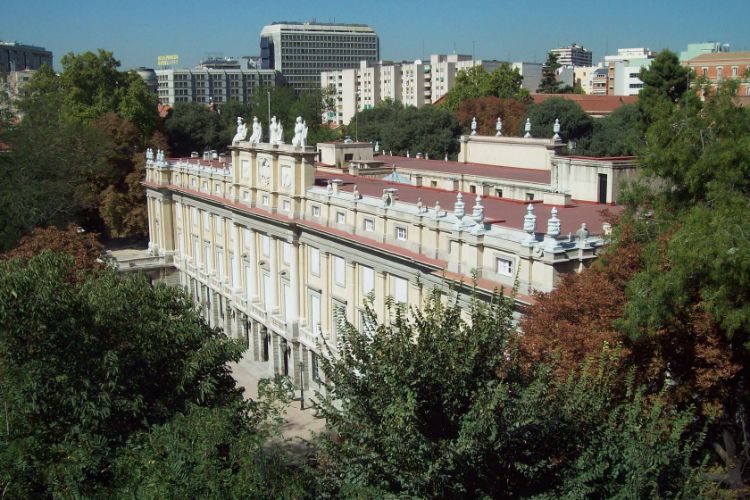
Liria Palace - Casa de Alba Foundation
MadridLiria Palace - Casa de Alba Foundation (Palacio de Liria - Fundacion Casa de Alba) is a Neo-classical palace that was built in the 18th and renovated in the 20th century. It houses a collection of European art, including paintings, engravings, sculptures and decorative arts. It holds works by famous- 98
Diocesan Museum of Menorca
CiudadelaAn architectural complex of great relevance, erected during the 17th century. It houses a museum of archaeology, old and contemporary paintings, ornaments and liturgic art.